The 6 best espresso machines for your dream coffee nook
From petite to professional, these tried-and-tested machines will bring barista-worthy coffee to your home
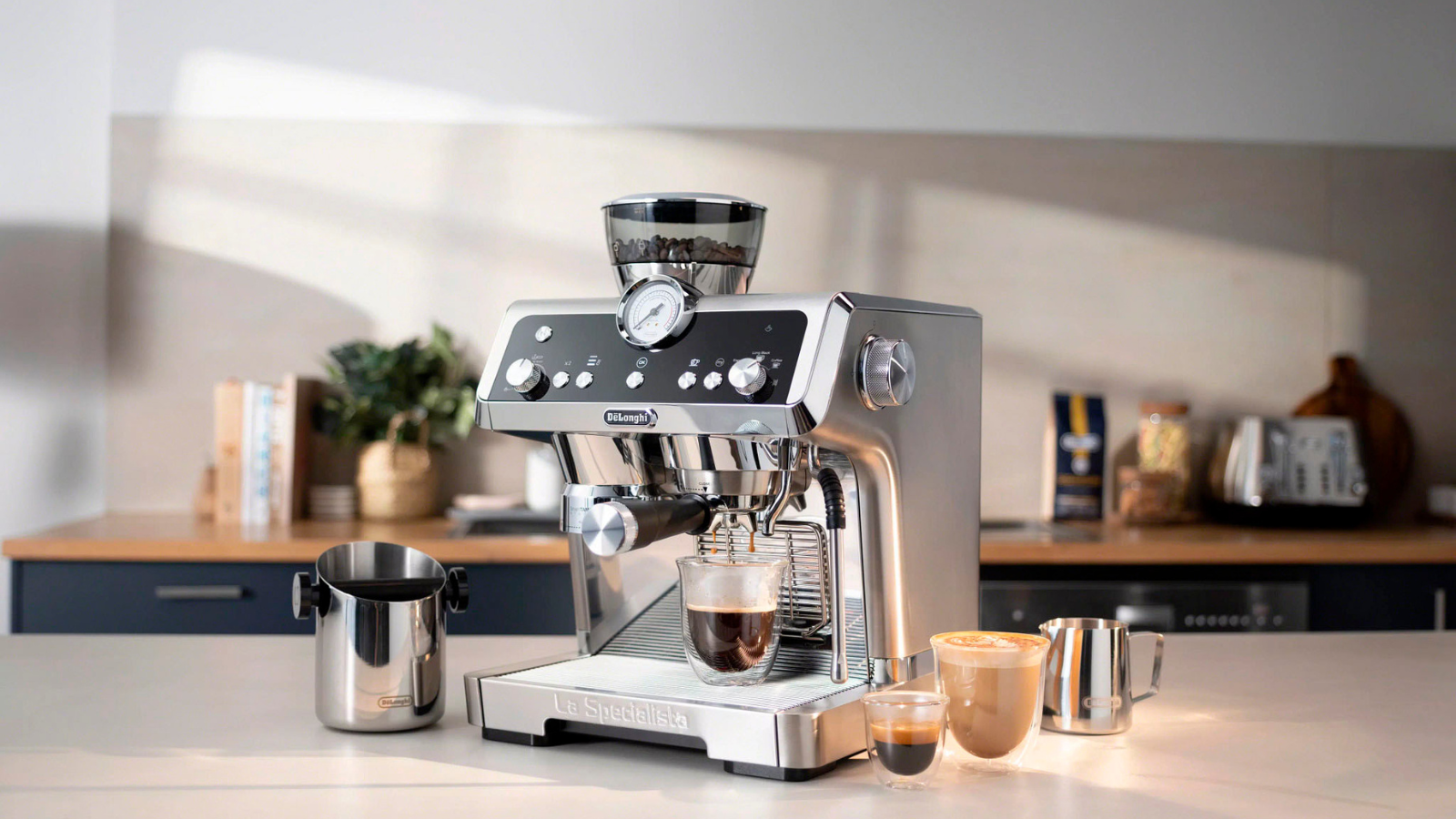

If you're creating a cozy coffee nook, you'll need the perfect coffee maker, and when it comes to versatility, espresso machines are unmatched. They can brew everything from bold espresso shots to foamy cappuccinos, usually armed with bean grinders, steam wands, and sometimes smart technology that can automate your brew. Once you find the best coffee maker, you can transform your home into a luxe café.
As a kitchen appliances expert, I’ve spent the last nine months testing the best espresso machines alongside expert barista and product tester, Laura Honey. Together, we’ve put over 70 models through their paces – from Breville’s barista-worthy machines to De’Longhi’s automatic offerings.
Our expert team assesses each machine for brewing performance, ease of use, durability, and design. Currently, our winner overall is Breville's The Barista Pro – which effortlessly hits all the criteria. But if you’re looking for something more budget-friendly, luxe, or compact, we've rounded up five stellar options in this list.
The quick list
These are the headlines, hot off the press. You can scroll down for more insights on each model from our expert tests.
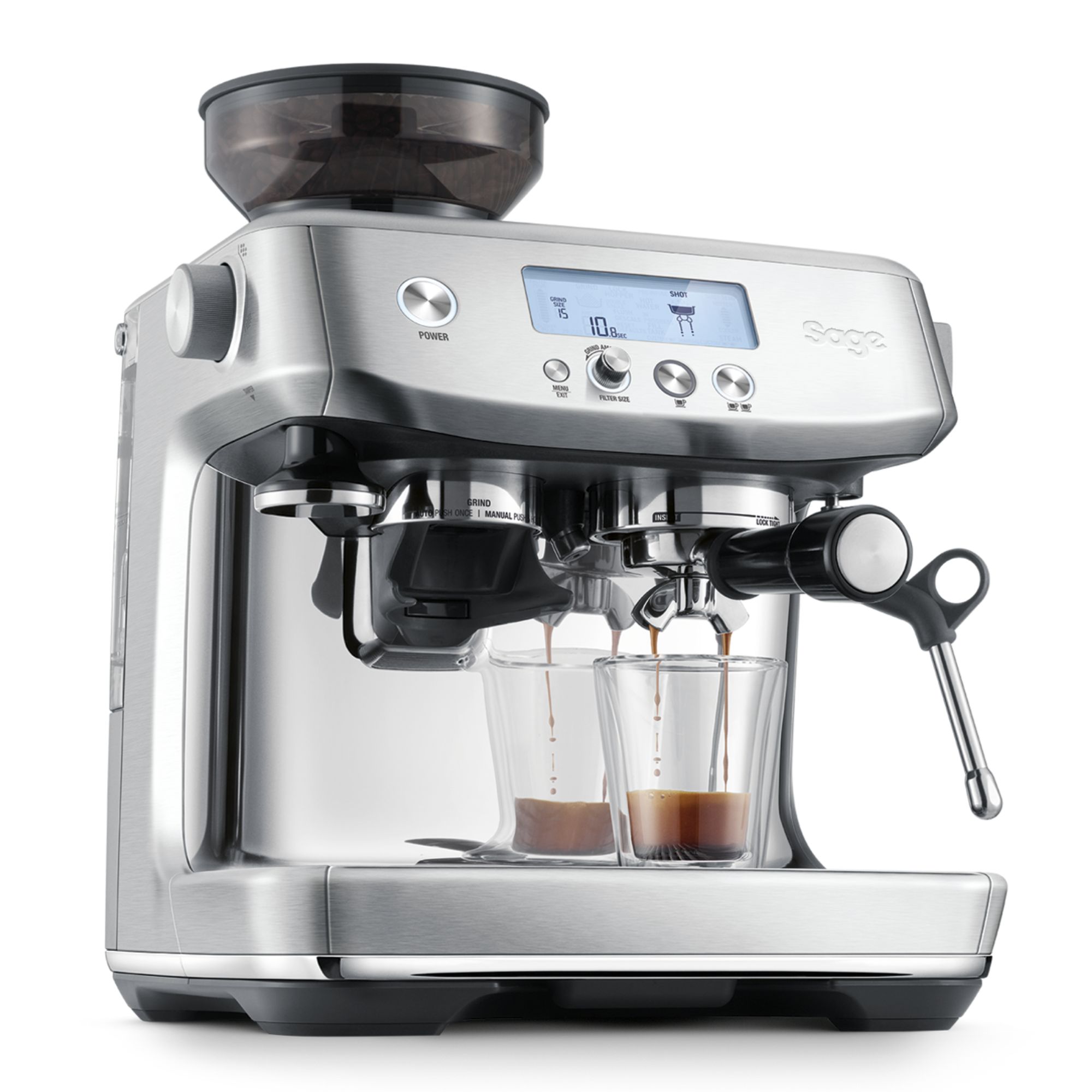
As an espresso machine, this is hard to fault. It's intuitive to use and has the technical ability to cater to the most sensitive coffee drinker's palette. You won't find a better machine for the price.
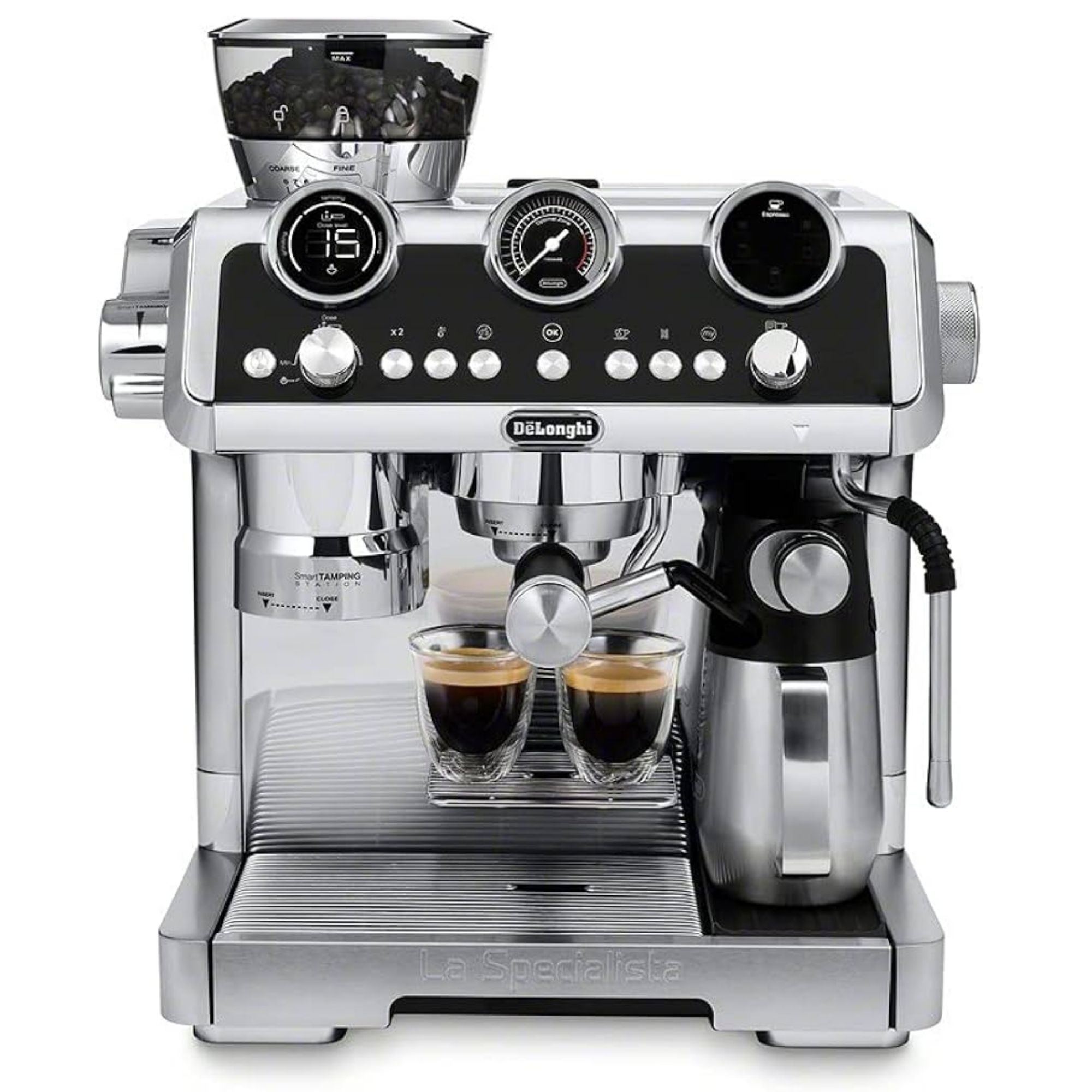
I nearly had this as my top choice, but Breville won for the more affordable price tag. The Delonghi stands out for its exceptional espresso and versatility, even offering cold brew. It's beginner-friendly, but it comes with a premium price tag.
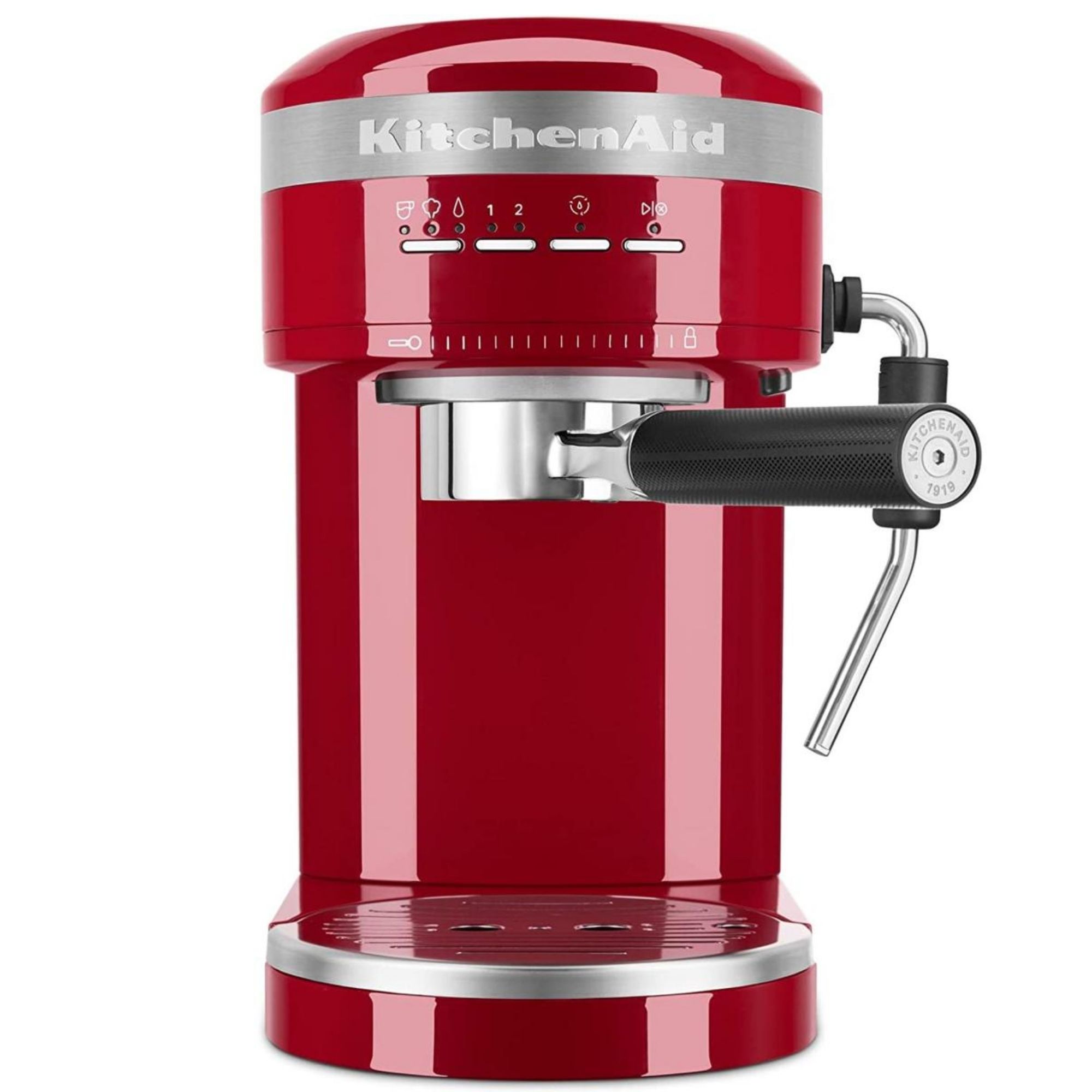
If you have a petite kitchen, the KitchenAid is a nice choice. It's slim, stylish and super simple, but it makes coffee. It's also great for beginners.
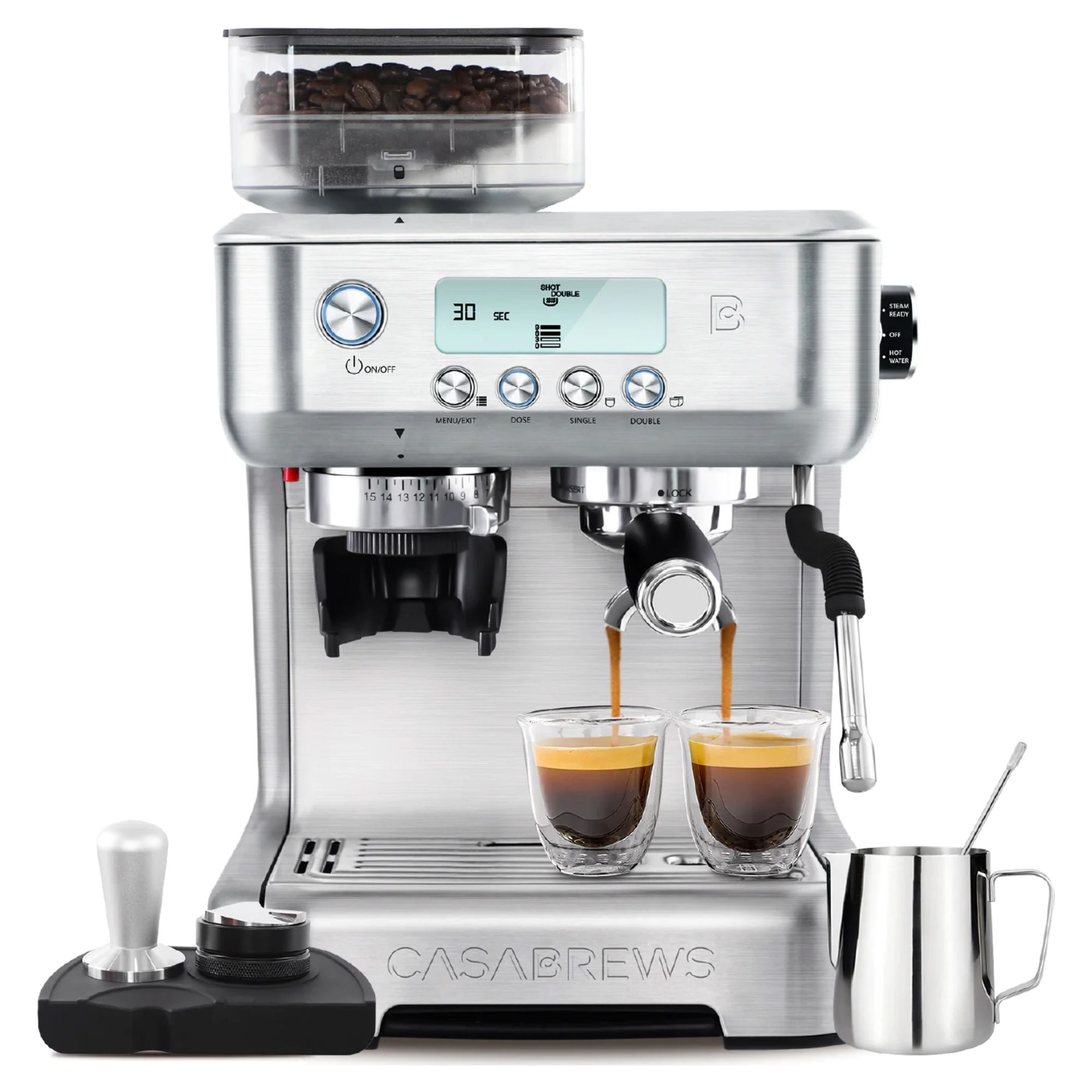
The TikTok famous Casabrews is great if you’re on a budget and happy to compromise on time and a bit of noise. It makes tasty coffees and froths milk exceptionally well.
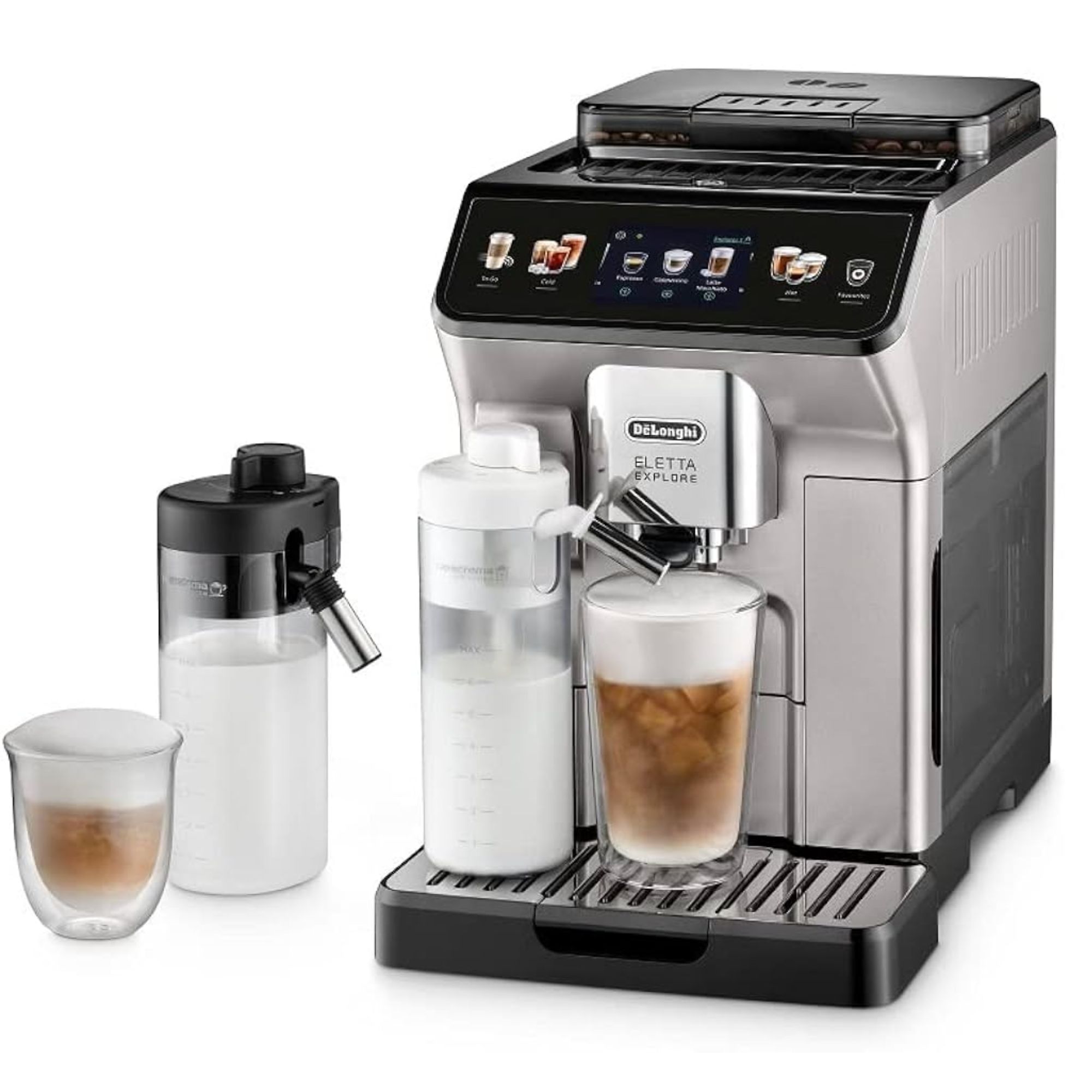
If you're looking for ease, this machine is fully automatic. All you have to do is tap a screen to gain access to over 52 styles of coffee. Every cup is top quality, from cortado to cold brew. It's a brilliant option for busy, hands-off coffee snobs.
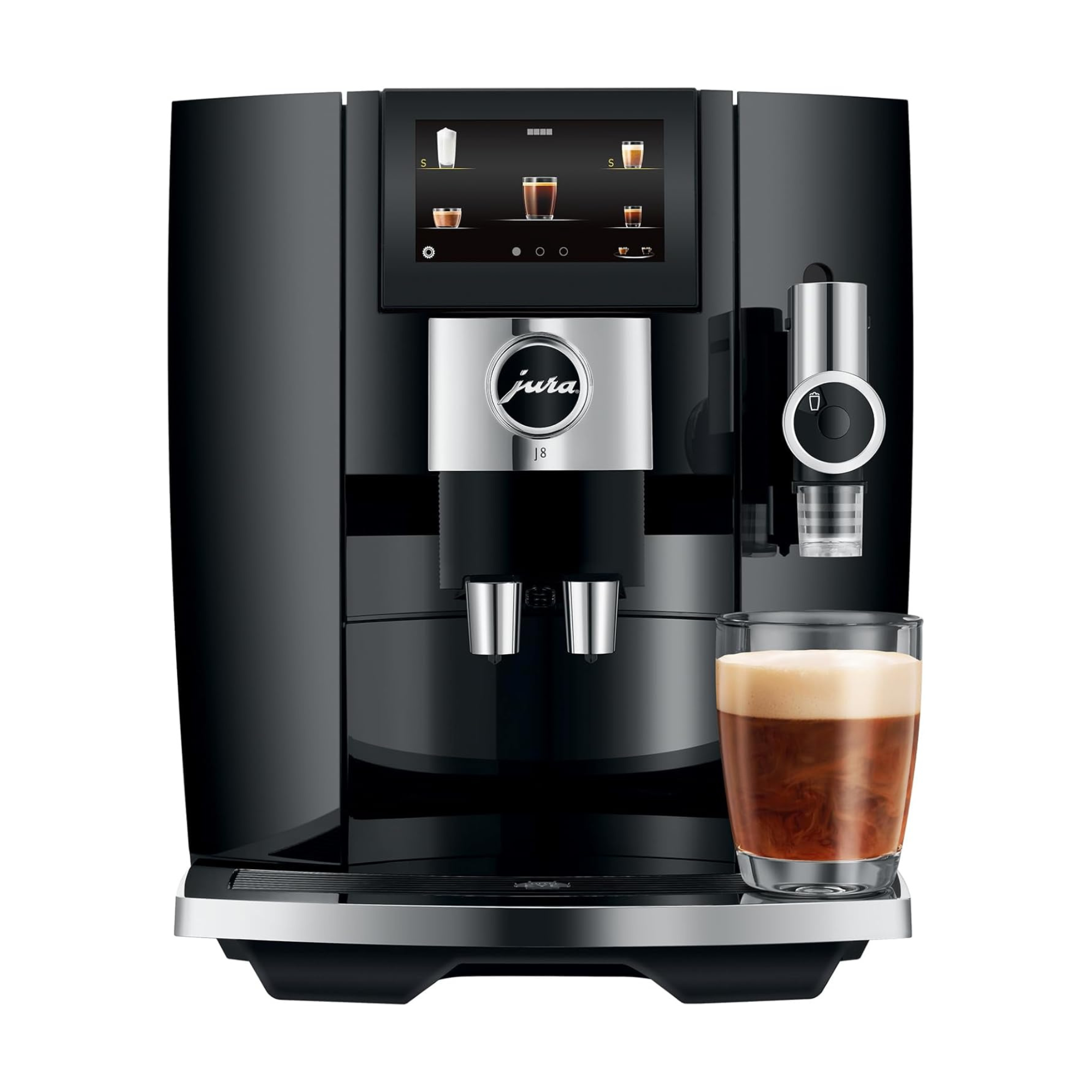
If you're a fan of pumpkin spice lattes or caramel macchiatos, you're in for a real treat. The Jura J8 is another fully automatic machine that makes rich, full-bodied espressos and the best sweet foam – at the touch of a button.
The best espresso machines in 2024
The best espresso machine overall

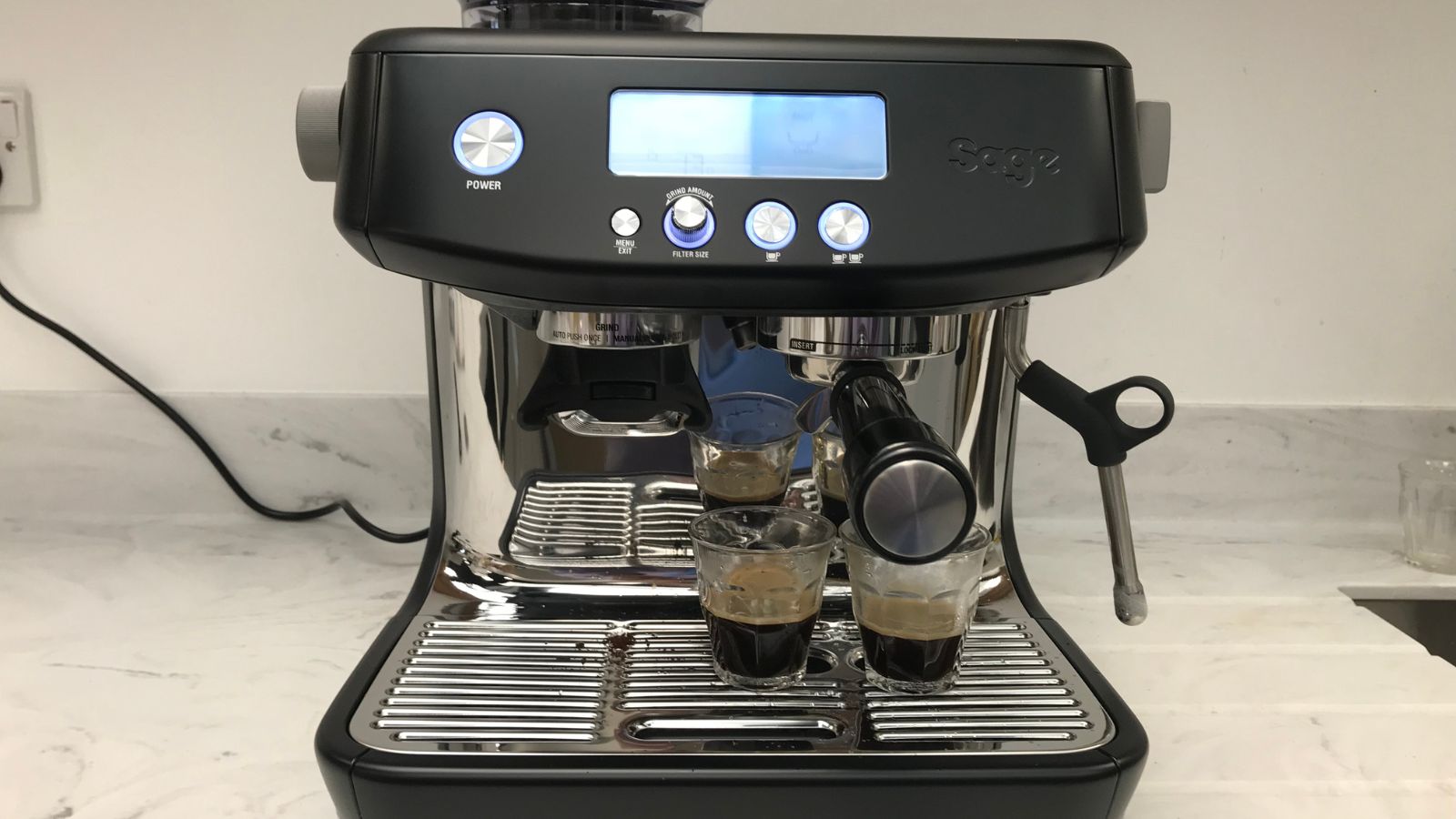
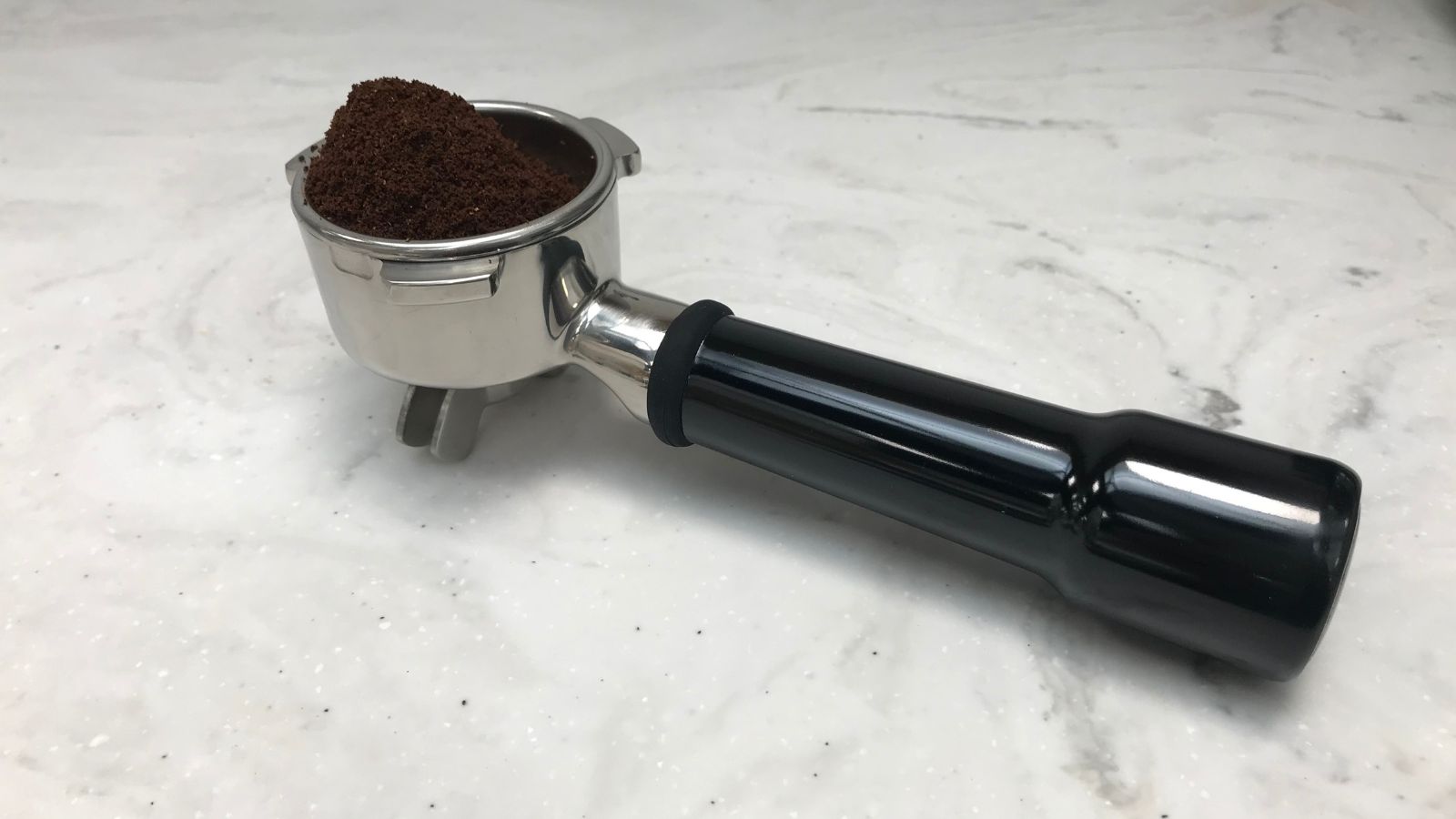
1. Breville The Barista Pro
Our expert review:
Specifications
Reasons to buy
Reasons to avoid
Who would it suit? If you simply want the best espresso machine, the Barista Pro is impossible to beat. It's stylish and will make you feel like a proper coffee expert, although it's simple enough to use. If you're not into adjusting your brews or manually steaming your milk, you'll want one of the automatic machines I've recommended instead.
What we liked: First off, the build quality feels exceptional. It's stable on the countertop and has ultra-premium finishes, from the control panel to the weighty portafilter. There's a range of technical settings, including adjustable temperatures and brew times, which are easy to navigate and means that any professional barista will feel more than satisfied with their espresso machine.
The integrated grinder isn't a given in every espresso machine and it shouldn't be underrated. This comes with 30 different grind settings and delivers consistent ground, expert results. The Barista Pro also comes with a generous selection of accessories (tamper, portafilter baskets, stainless steel milk pitcher). This means that the machine arrives with all you need to make consistently delicious coffee. There’s no mess, no fuss, just great coffee from the get-go.
What we didn't like: Not much. The only thing is the Barista Pro has a relatively large footprint and pretty toppy price tag (just over $1,000). However, if you'll use all of the features, it's worth every dollar. You won't find a good espresso machine with a grinder for less than $800. It's worth spending another $200 to get an all-in-one machine that will last you for a lifetime.
There's more detail in our Breville Barista Pro review.
Attributes | Notes | Rating |
|---|---|---|
Flavor | Perfectly extracted range of notes across all coffee types | ★★★★★ |
Usability | Easy to use with scope for experts | ★★★★★ |
Value | Expensive, but good quality, durable build | ★★★★ |
Appearance | Looks professional, but demands a lot of space | ★★★★ |
The best luxury espresso machine

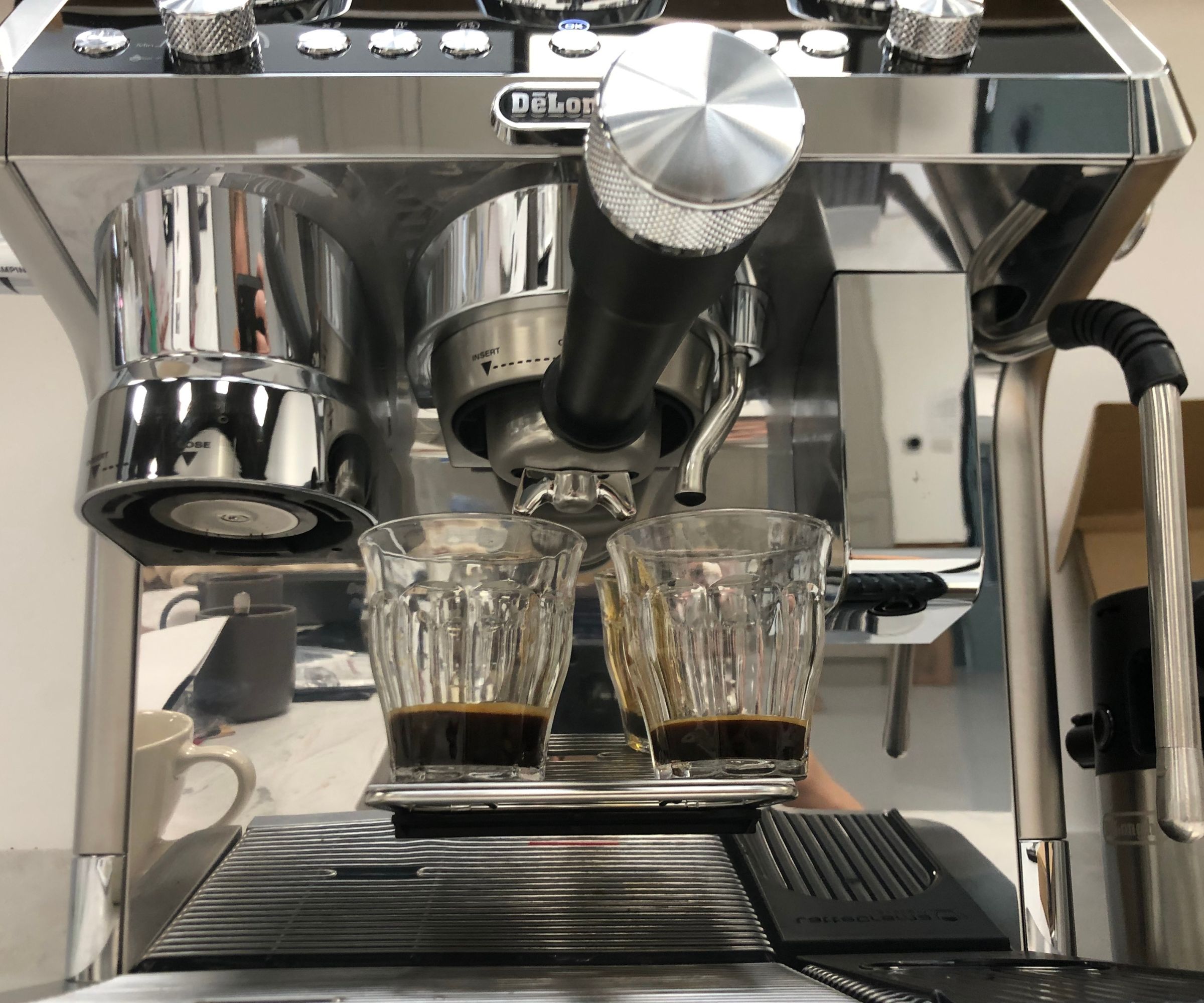
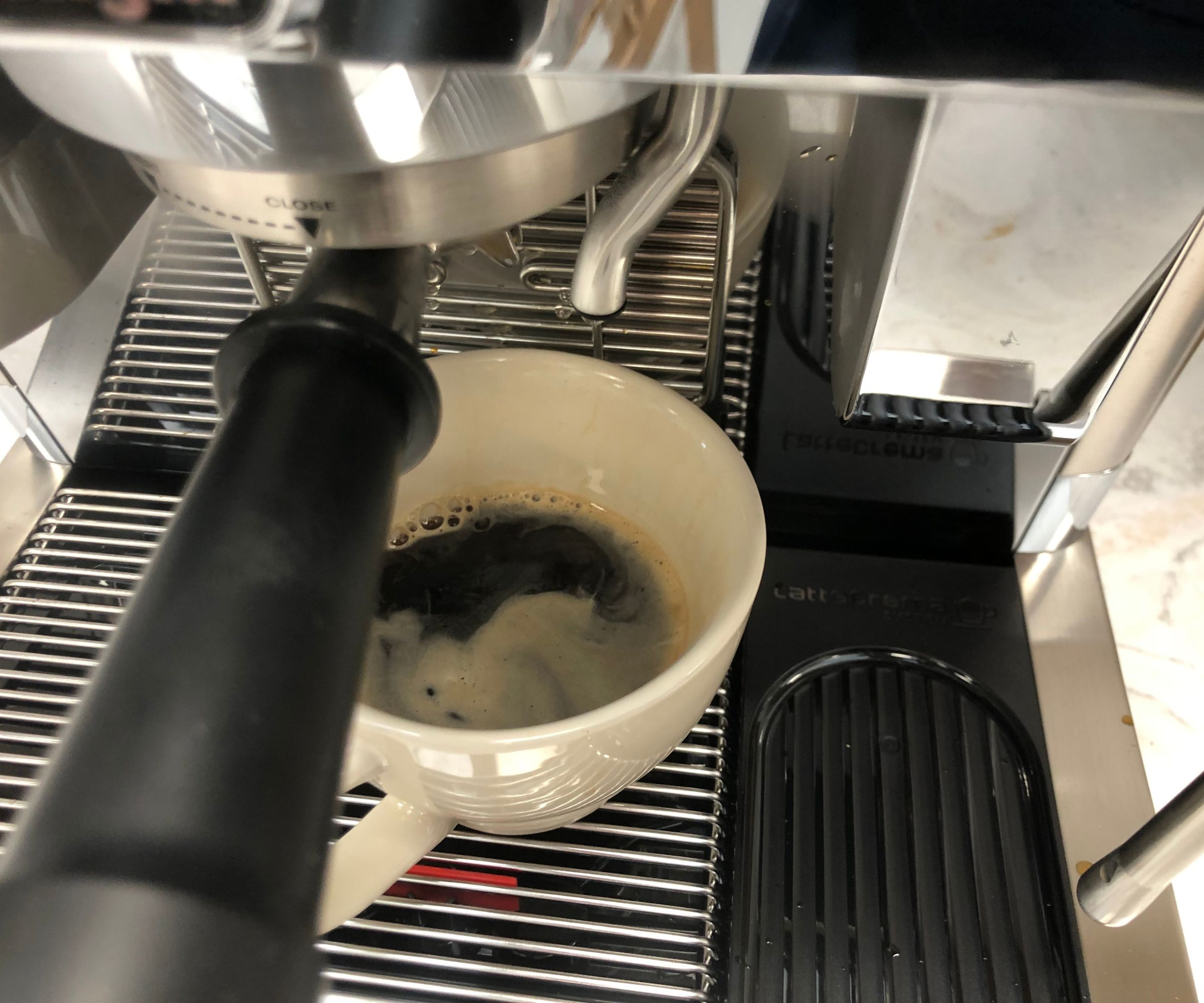
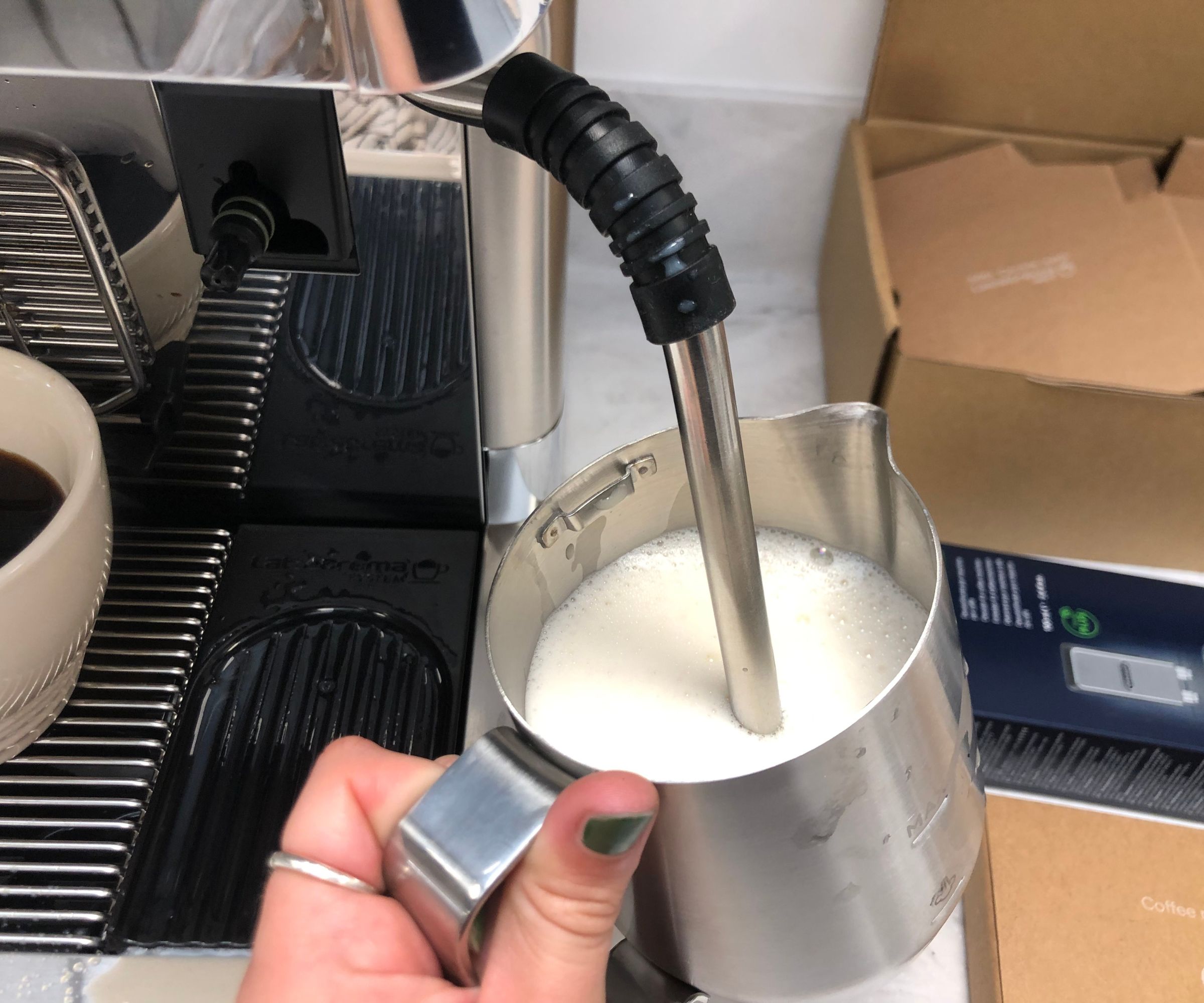
Specifications
Reasons to buy
Reasons to avoid
Who would it suit? With auto-tamping, auto-grinding, auto-brewing, and auto-frothing, the only thing this espresso machine won’t do for you is drink your coffee. If you're a beginner, La Specialista Pro will lead you effortlessly into the world of luxury coffee. If you’re a professional who shivers at the idea of auto-everything, you can disarm these functions and use it completely manually. It’s truly a do-it-all machine.
What we liked: If you gave me a piece of paper to design my dream coffee machine, this is the one I would draw. It can make a range of incredible coffees, hot and iced, including cold brew. I've only seen one espresso machine that can match it, which is the Breville Barista Pro above.
If we just judged espresso machines on aesthetics, this would win every time. I have one of these in my kitchen and it gets a complement every time a new guest comes into my kitchen. The dials look technical, but really, they’re made for beginners. One is a menu for different coffee types and the other gets more technical with brewing temperatures, eighteen faultless grind settings, espresso quantities, and more.
In spite of the shiny, glossy finish, this is really low maintenance. I left my family using this for two weeks whilst I was away and when I came back, it hadn’t been cleaned, but still looked spotless. The drip tray effectively drains any coffee splatters away and the backboard neatly masks splashes too. When it needs a deep clean, descale, or run-through, the control panel tells you. All I have to do is press a button and, you guessed it, the machine will work through the rest.
What we didn't like: It's wildly expensive and you might not need all the extra functions and automated features, like cold brew for example. It is also really heavy and quite large, so if you have a small kitchen, this will dominate your space.
There's more information in our De'Longhi La Specialista Maestro review.
Attributes | Notes | Rating |
|---|---|---|
Flavor | Bold, rich, well balanced flavors across all the menu | ★★★★★ |
Usability | Intuitive controls which can get technical | ★★★★★ |
Value | Extremely expensive if you don't use every function | ★★ |
Appearance | Eye-catching, techy, and very low maintenance | ★★★★★ |
The best espresso machine for small spaces

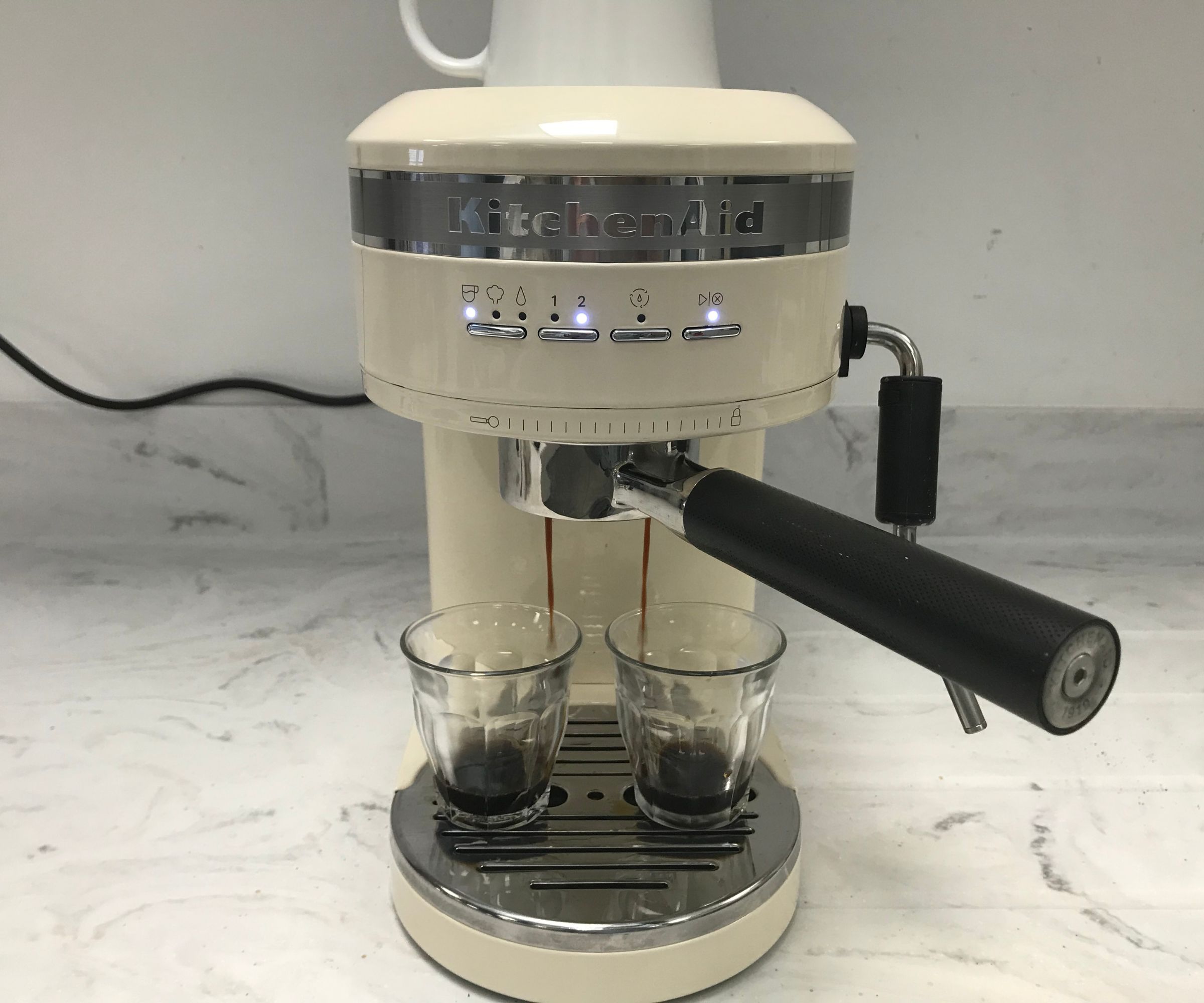
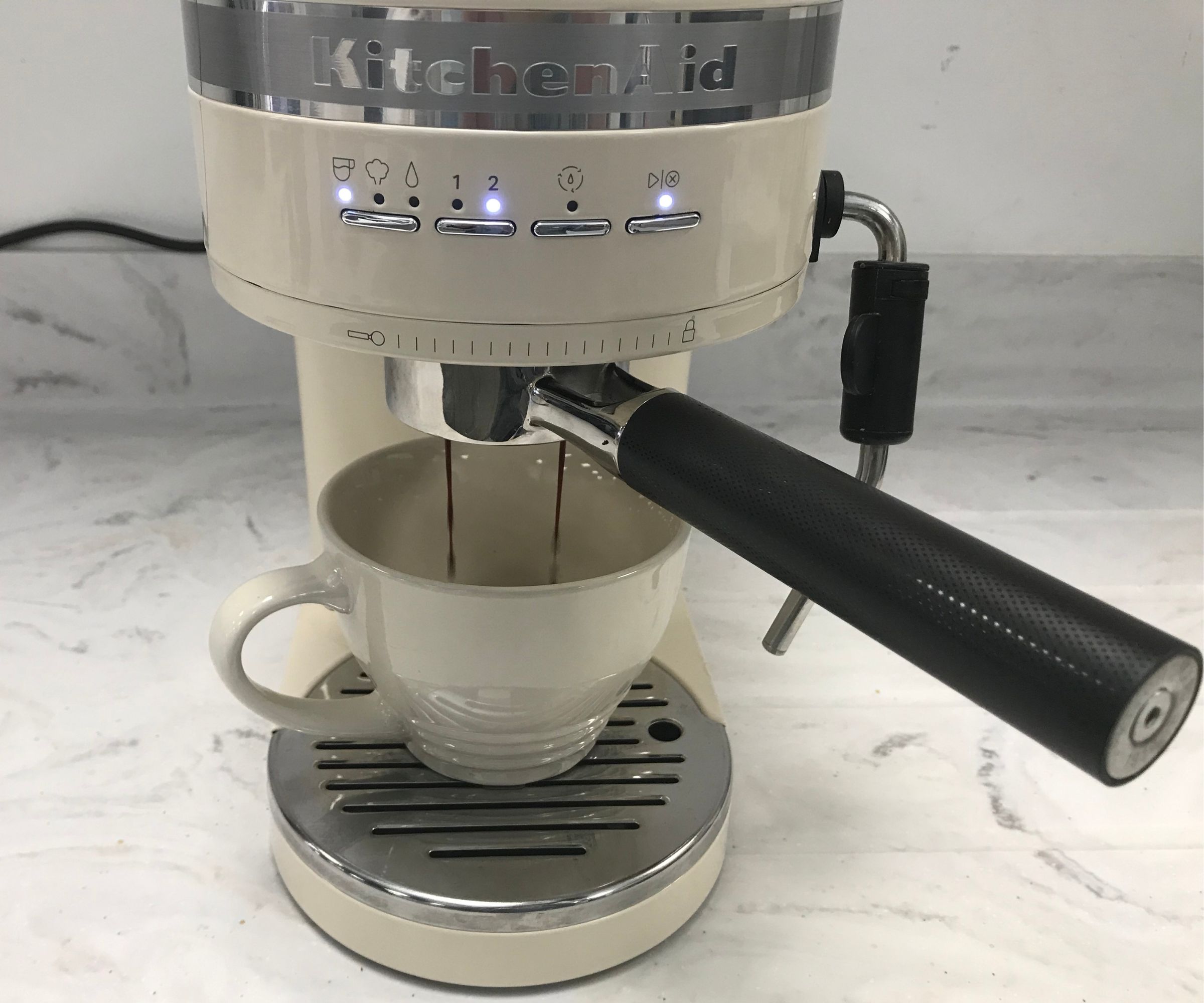
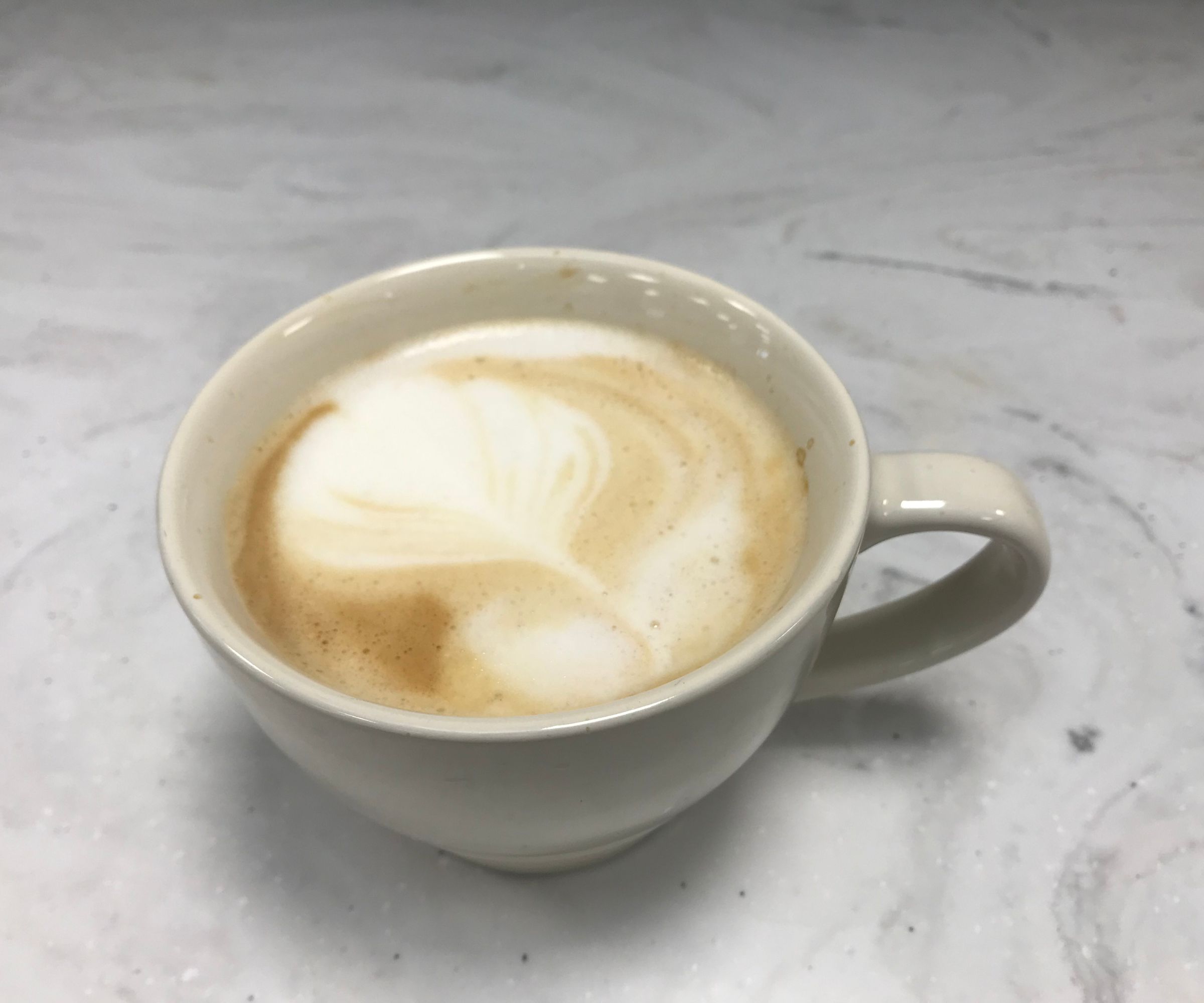
Specifications
Reasons to buy
Reasons to avoid
Who would it suit? This model is ideal if you want a simple espresso machine for a small space. It's also great for total beginners, since it focuses on making excellent coffee without any extra dials or distractions. However, it doesn't have an integrated grinder or any fancy features; experts or budding baristas may find it too basic.
What we liked: We loved the classic KitchenAid design; it's even available in red, cream, and stainless steel to add some character to your kitchen. And it's just so easy to use. There’s enough weight in the base for the portafilter to lock into place without lifting off the countertop. It brews delicious espresso (both double and single shots) and the stream of hot water produced by the steam wand is the perfect pressure. It doesn’t splash or trickle, meaning your countertops stay free from coffee stains. When you want to make a cappuccino or latte, you can use the manual steam wand to create silky-smooth drinks.
What we didn't like: Whilst it's incredible value for the coffee it makes, some features explain why it’s so affordable. The casing is plastic, which feels a little cheap, even though the overall machine is relatively robust. The simple functions don’t leave any room for customization. You can’t change the temperature, strength, or length of the coffees you brew, which more experienced baristas might find frustrating.
Plus, it doesn’t come with an integrated grinder, but if you already have one (or you’re happy switching between coffee capsules and store-bought pre-ground coffee) that won't be a problem.
There's more detail in our KitchenAid Espresso Machine review.
Attributes | Notes | Rating |
|---|---|---|
Flavor | Delicate flavors, not quite well extracted as the two above | ★★★★ |
Usability | Super simple controls (could be limiting for professionals) | ★★★★★ |
Value | A well priced machine (although it doesn't include a grinder) | ★★★★ |
Appearance | Slim, stylish, and available in a range of colors | ★★★★★ |
The best budget espresso machine

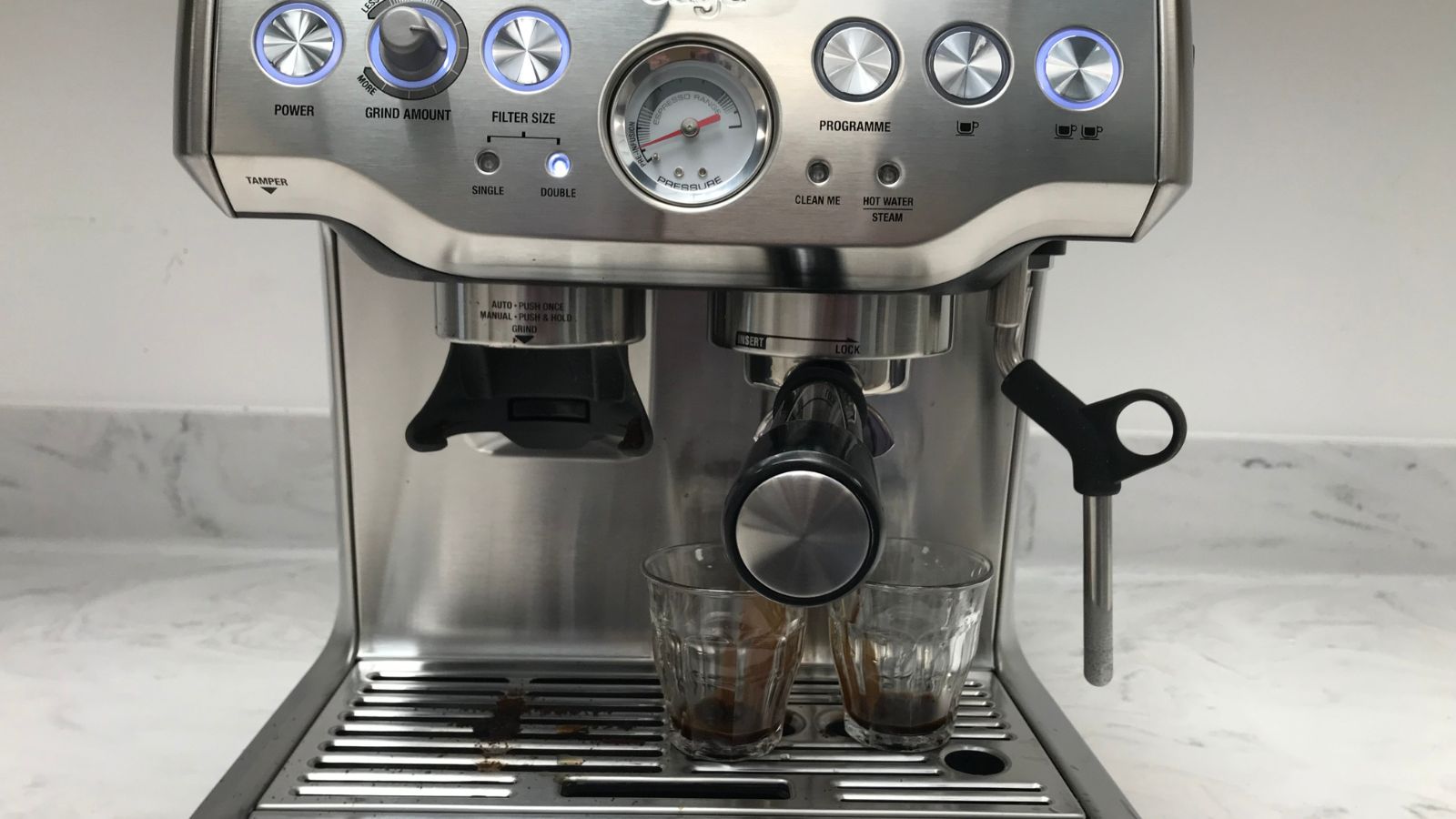
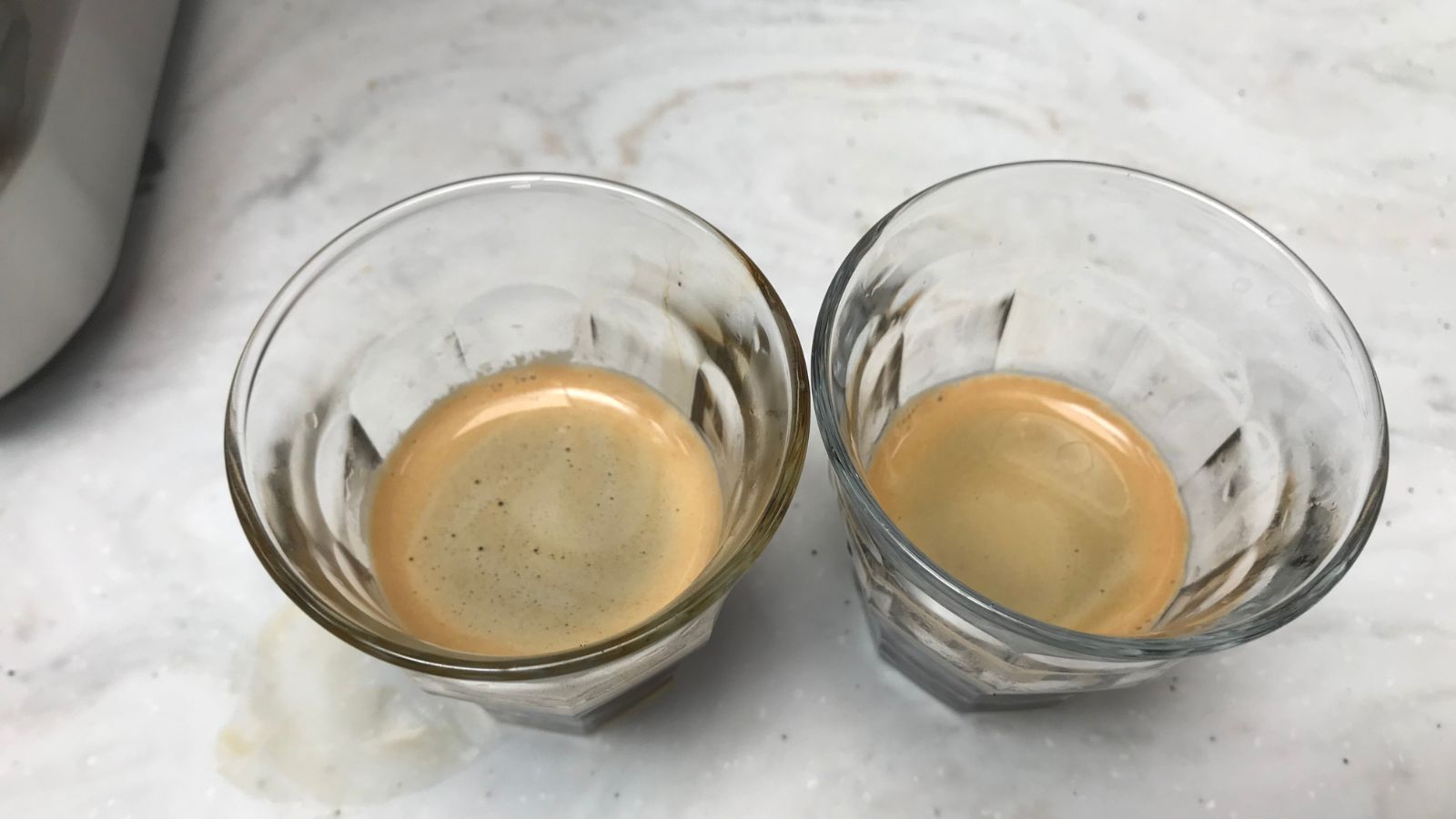
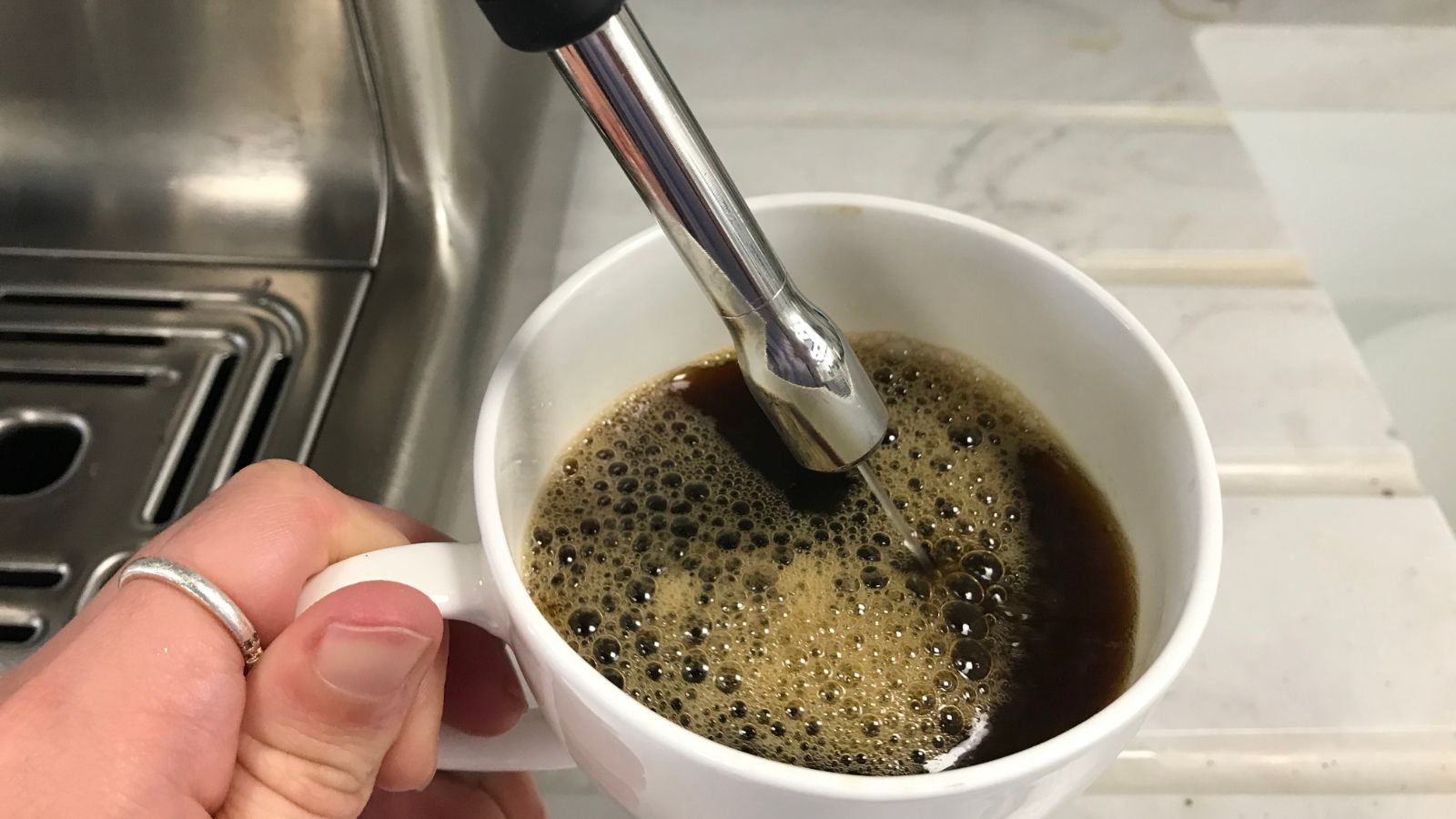
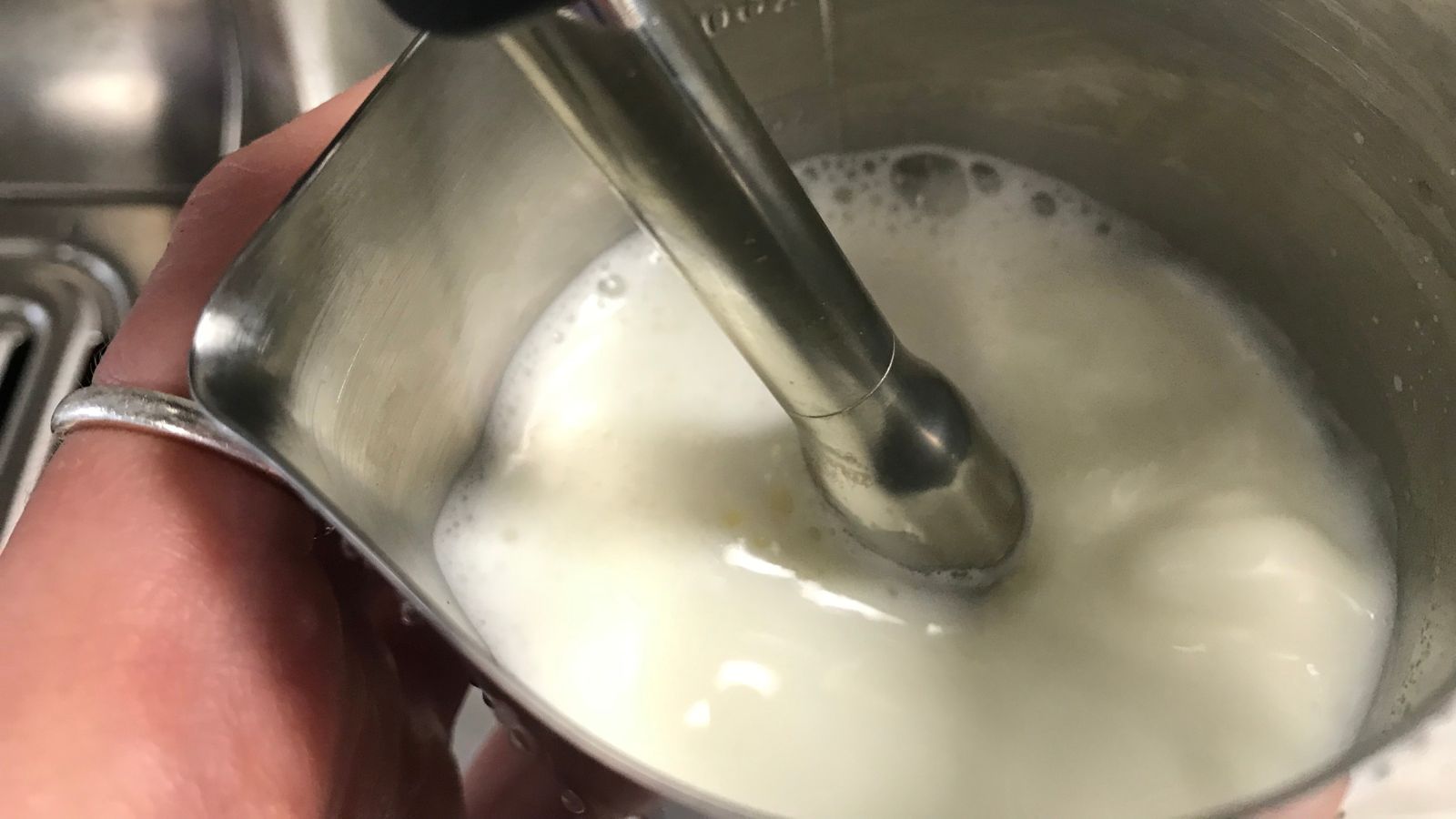
Specifications
Reasons to buy
Reasons to avoid
Who would it suit? This machine is ideal for budget-conscious coffee lovers who want quality espresso without paying for a luxe heritage brand. While it delivers good coffee, it's best suited to more patient people. Be prepared for a slower, louder experience with longer wait times between pulling shots and steaming milk.
What we liked: It's fantastic value. We were pleasantly surprised by the amount of extras included with the Casabrews espresso machine. Our professional barista, Laura, said: 'The heavy tamp was one of the best I've ever been sent as an extra. I’d also never been given a tamping mat before, (I used these as a professional barista, so it was really nice, and a lot tidier, to have one of these back again.)'
It also came with an extra grinder, decorating pen, coffee distributor, cleaning needle, cleaning brush, coffee measuring scoop, portafilter and four baskets. Buying all these accessories could easily cost another $200, further enhancing the exceptional value of the Casabrews machine.
In terms of performance, the espressos were aromatic, smooth, and had a really good crema. The cappuccino and lattes were equally tasty and easy to create with the flexible steam wand.
What we didn't like: It's a bit slow, loud and lacking in precision. We tested it alongside our overall winner the Breville Barista Pro, which was three times faster at pulling an espresso shot, the steam wand was easier to move, and it was much quicker to move between coffee and steam because it stays at a higher temperature.
However, Breville doesn’t give you as many extras, nor do they give you a spare grinder, so if budget's a big consideration, I do think the Casabrews is a good choice. Just be prepared to sacrifice on premium finishes.
You can read more details in our Casabrews 5700 Pro review.
Attributes | Notes | Rating |
|---|---|---|
Flavor | Nice flavors, not quite as perfect as our top choices | ★★★★ |
Usability | Easy to use, but slow, loud and the milk wand can judder | ★★★ |
Value | Great value for money | ★★★★★ |
Appearance | Not a super chic brand, but still looks professional | ★★★★ |
The best automatic espresso machine

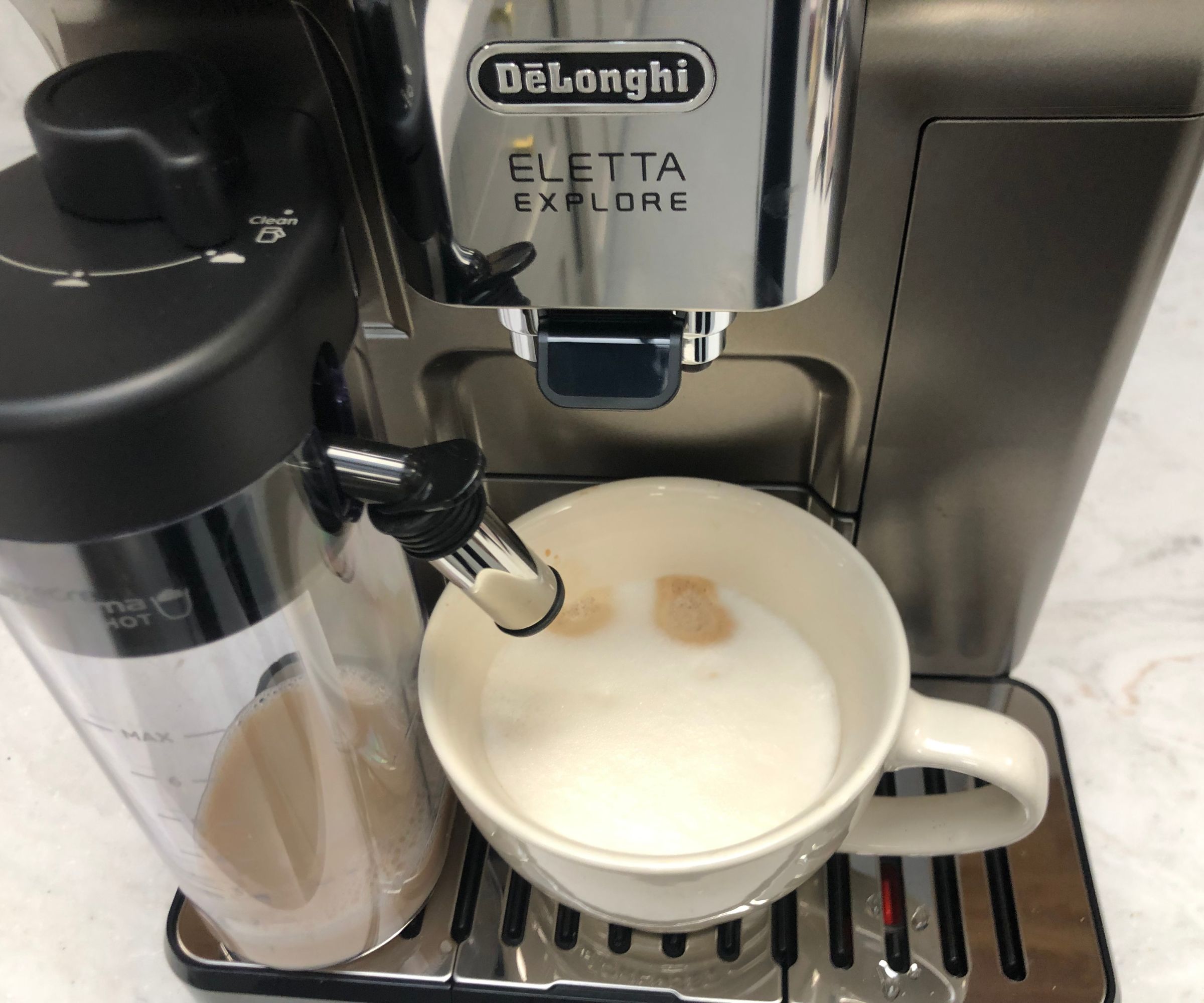
Specifications
Reasons to buy
Reasons to avoid
Who would it suit? If you like life's luxuries, you'll love the De'Longhi Eletta Explore. It's totally automatic, so you don't have to lift a finger to get your hands on over 50 different styles of coffee (apart from pressing the button, of course). If you like to mix up your coffee order, you can try everything from iced coffee to cortado, no experience needed.
What we liked: This is an incredibly competent bean-to-cup machine. It’s a delight to use and feels extremely premium. Our espresso was well-extracted and beautifully aromatic. There are also hot and cold milk foamers to make lattes, cappuccinos, flat whites – anything you require. We tested it on both oat and dairy milk and it was impressive all round. The milk was silky smooth and velvety. We didn’t have any unwanted air bubbles spoiling the texture, even when we frothed cold oat milk.
This machine even self-washes when it thinks necessary and will warn you to place a cup underneath. You can make ten coffees before needing to clean out the grounds container, so it's a generally low-maintenance machine.
What we didn't like: The first discriminator for this coffee maker is the price. At close to $2000, you have to be ready to splurge. By way of a rough price comparison, if you buy a coffee from Starbucks every day, you will make your money back in 400 days. You will be back in pocket after a year and a month but it’s a huge upfront investment. Every time a sale season rolls around, the De'Longhi Eletta Explore is the first thing we search for.
There's more detail in our De'longhi Eletta Explore review.
Attributes | Notes | Rating |
|---|---|---|
Flavor | Makes a flawless espresso | ★★★★★ |
Usability | Super user-friendly and fully automatic | ★★★★★ |
Value | Expensive | ★★★★ |
Appearance | Smart and sleek | ★★★★★ |
The best espresso machine for sweet foam drinks

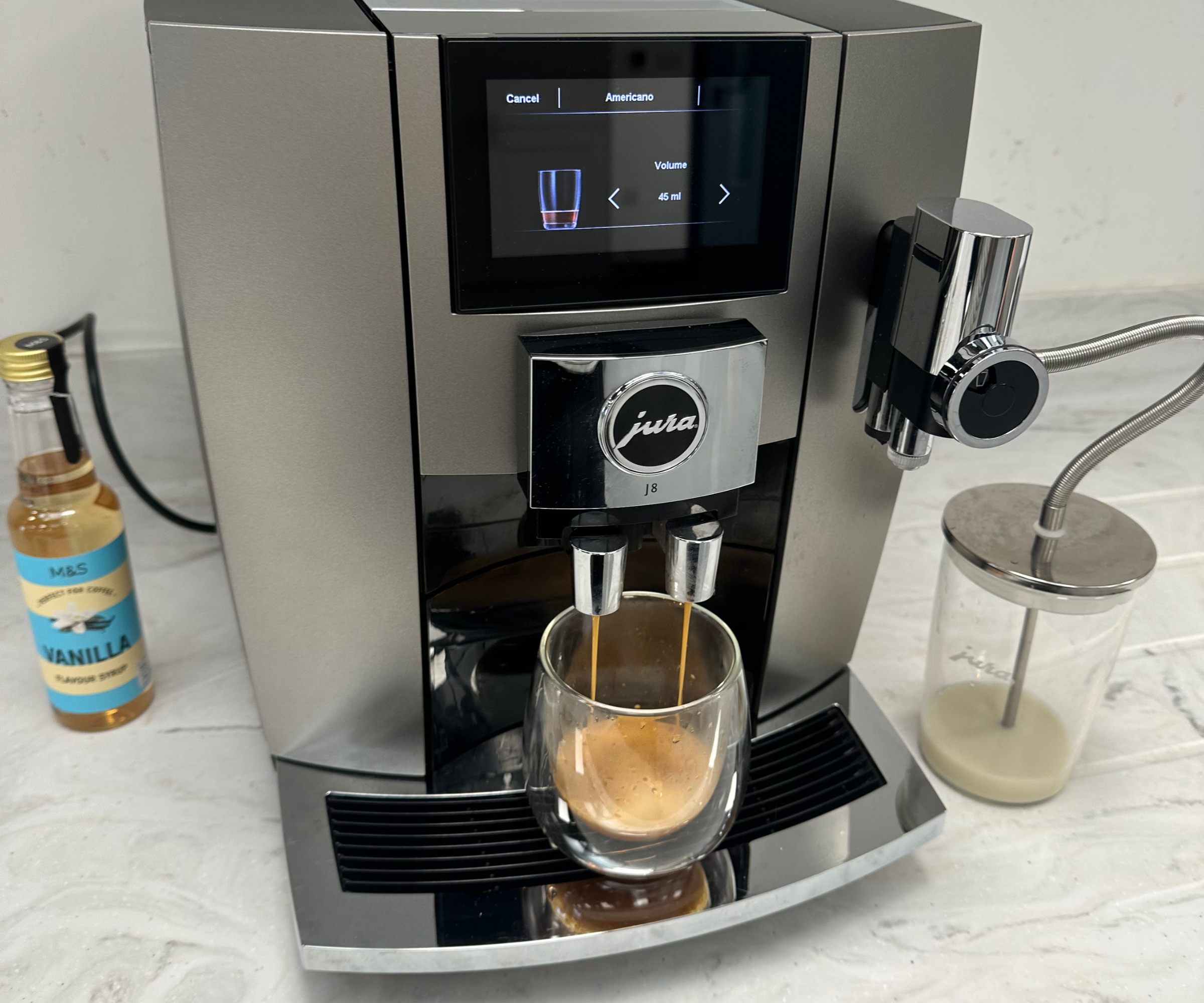
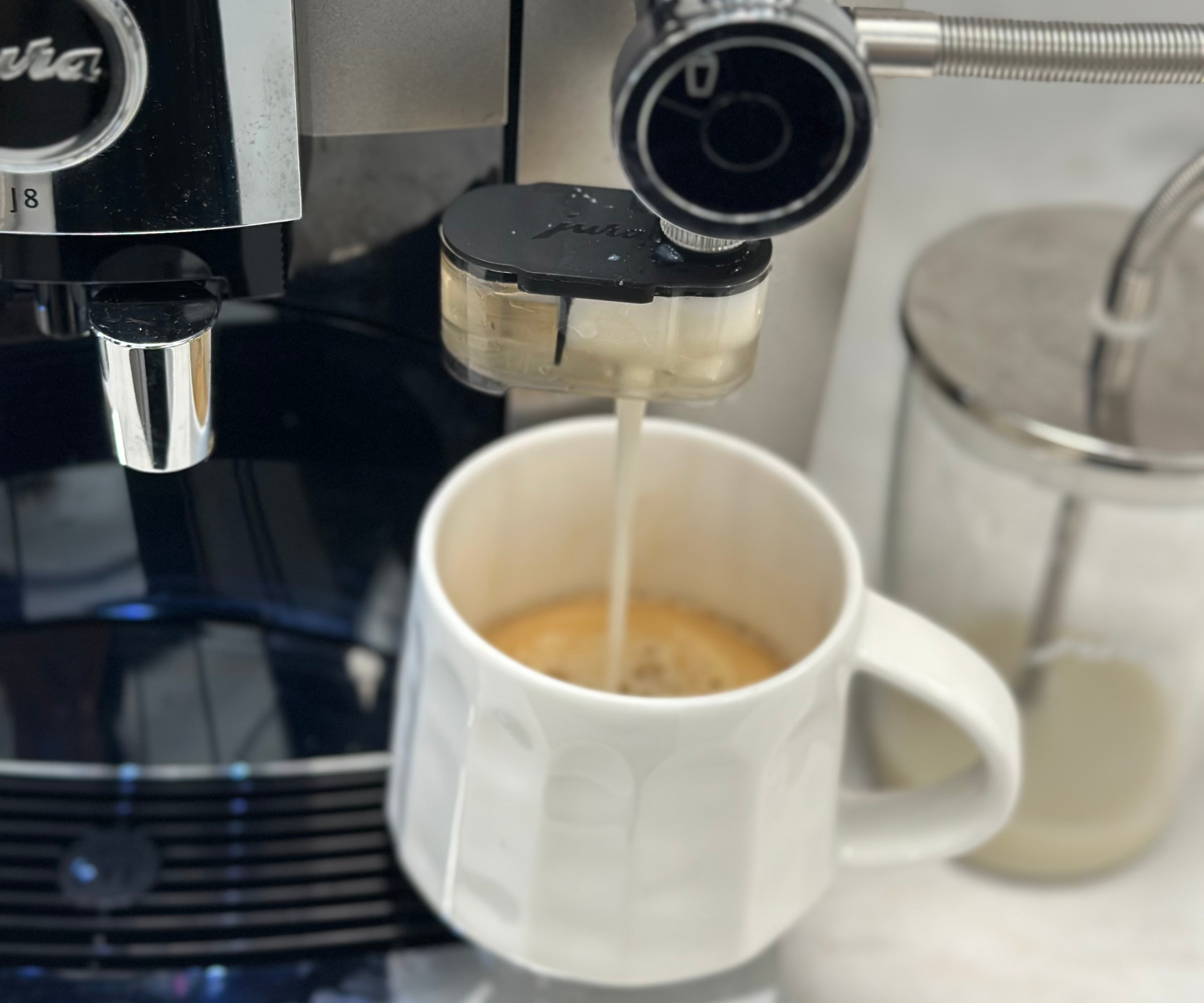
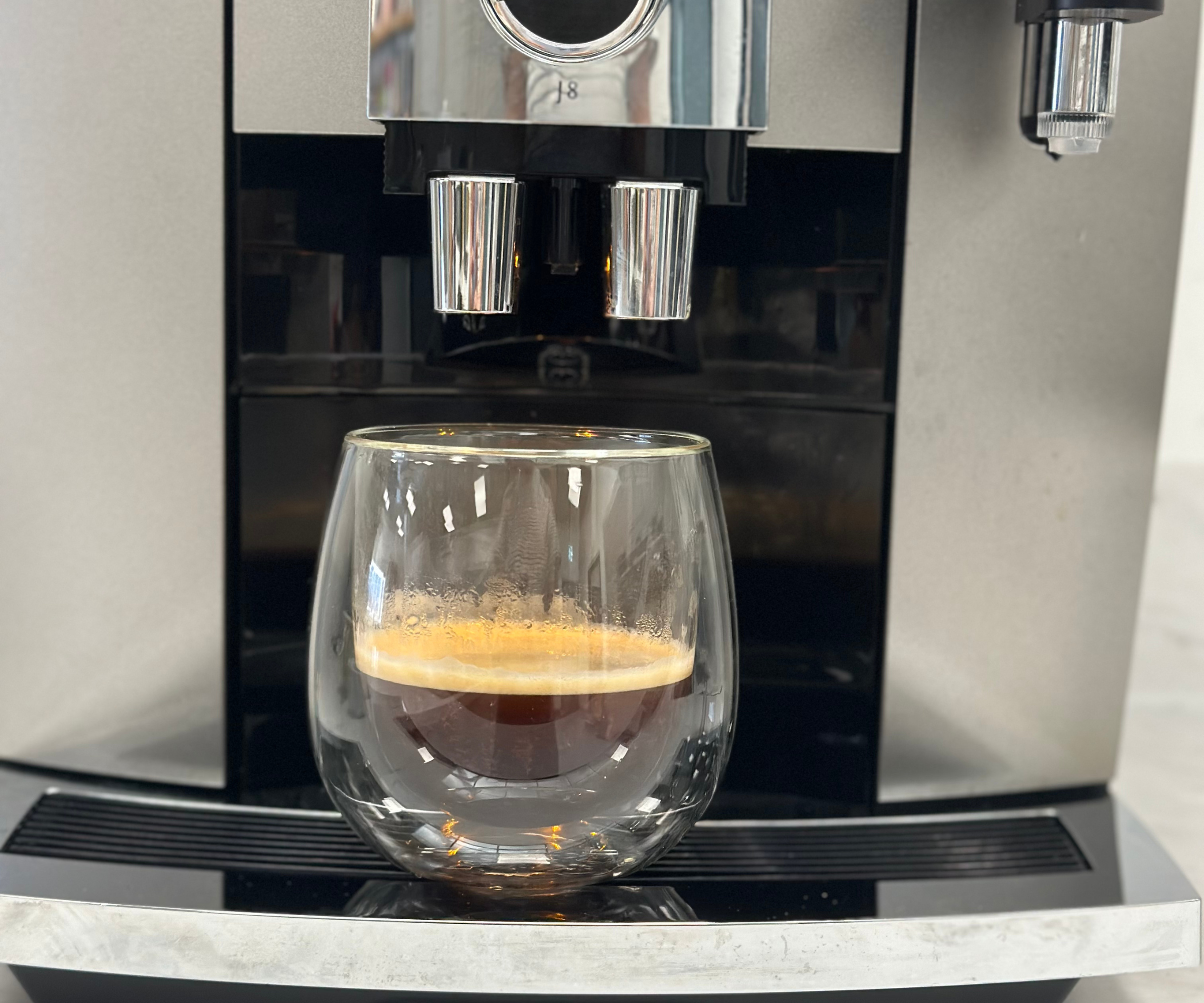
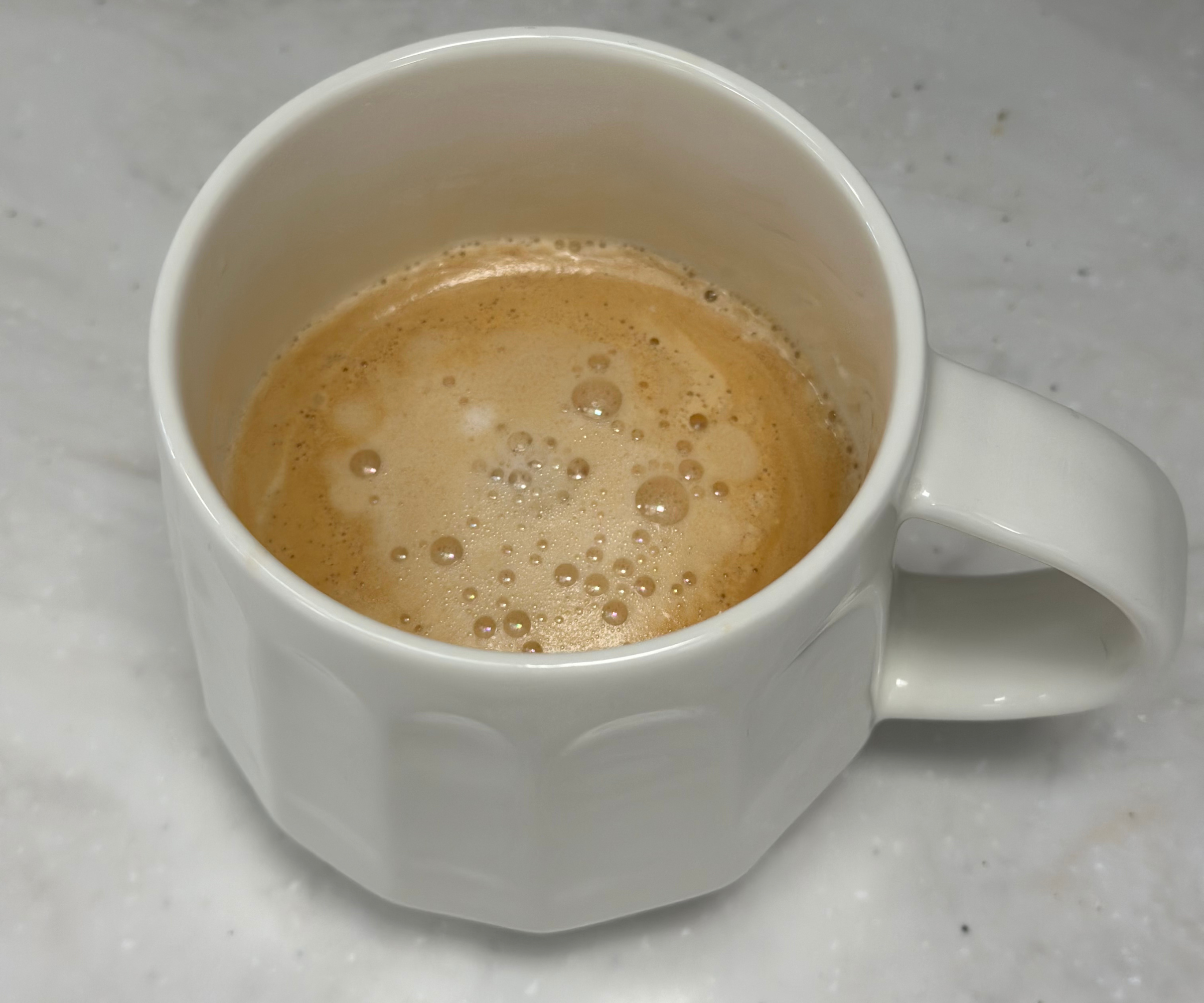
Specifications
Reasons to buy
Reasons to avoid
Who would it suit? Espresso lovers, sweet foam fans, and probably a whole family of coffee drinkers with diverse tastes. If you enjoy hosting, the Jura J8 is a perfect choice – its ability to create barista-quality drinks will impress guests. Honestly, you could even open your own at-home café with the capabilities of this machine.
What we liked: It's our top choice for sweet foam, but where the Jura J8 shines is the espresso itself. I set the grinder to its most intense setting for an espresso, and within 10 seconds, I had a rich, full-bodied shot. It was bold, smooth, and at the perfect temperature.
On the right side of the machine, you’ll find a dedicated spot for a removable capsule, which you can fill with any syrup of your choice – think vanilla, pumpkin spice, or gingerbread. Once you've selected your brew, you can add the exact amount of syrup you prefer to the capsule before attaching it to the milk dispenser. Watching the process is a delight, as the milk seamlessly channels through the syrup capsule, combining into a silky, sweet foam.
The result? Deliciously sweet and velvety, with every sip offering a smooth, consistent flavor with that rich espresso flavor coming through. I felt like I'd ordered it from a luxurious cafe, but it was all homemade. It's a totally unique experience.
What we didn't like: I found the automatic sensors slightly confusing. More on that in my full review (linked below), but generally it's not as easy to use as De'Longhi's automatic model above. I also wasn't keen on the lift-out water tank or the finish of the exterior, but that is personal taste. I did however, love the high-end stainless steel accessories and BPA-free plastic. I was also slightly disappointed at the lack of cold foam or iced coffee options since I like an iced caramel latte in summer.
You can read more in our full Jura J8 Automatic Espresso Machine review.
The ones that just missed the list
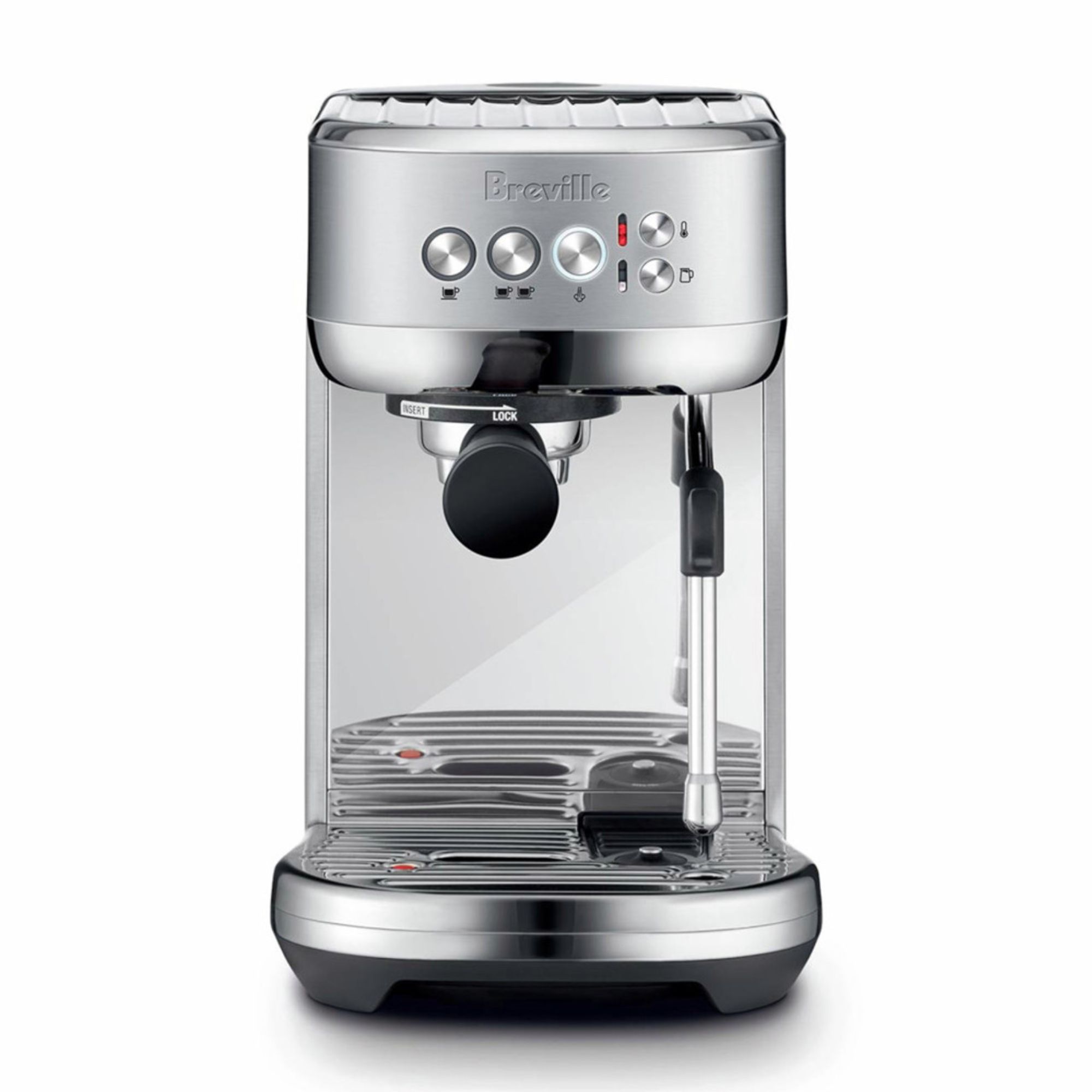
This slim, stainless steel machine is the dream for any small space dweller. It's compact and easy to use, producing top-quality espressos without the bulk or price tag.
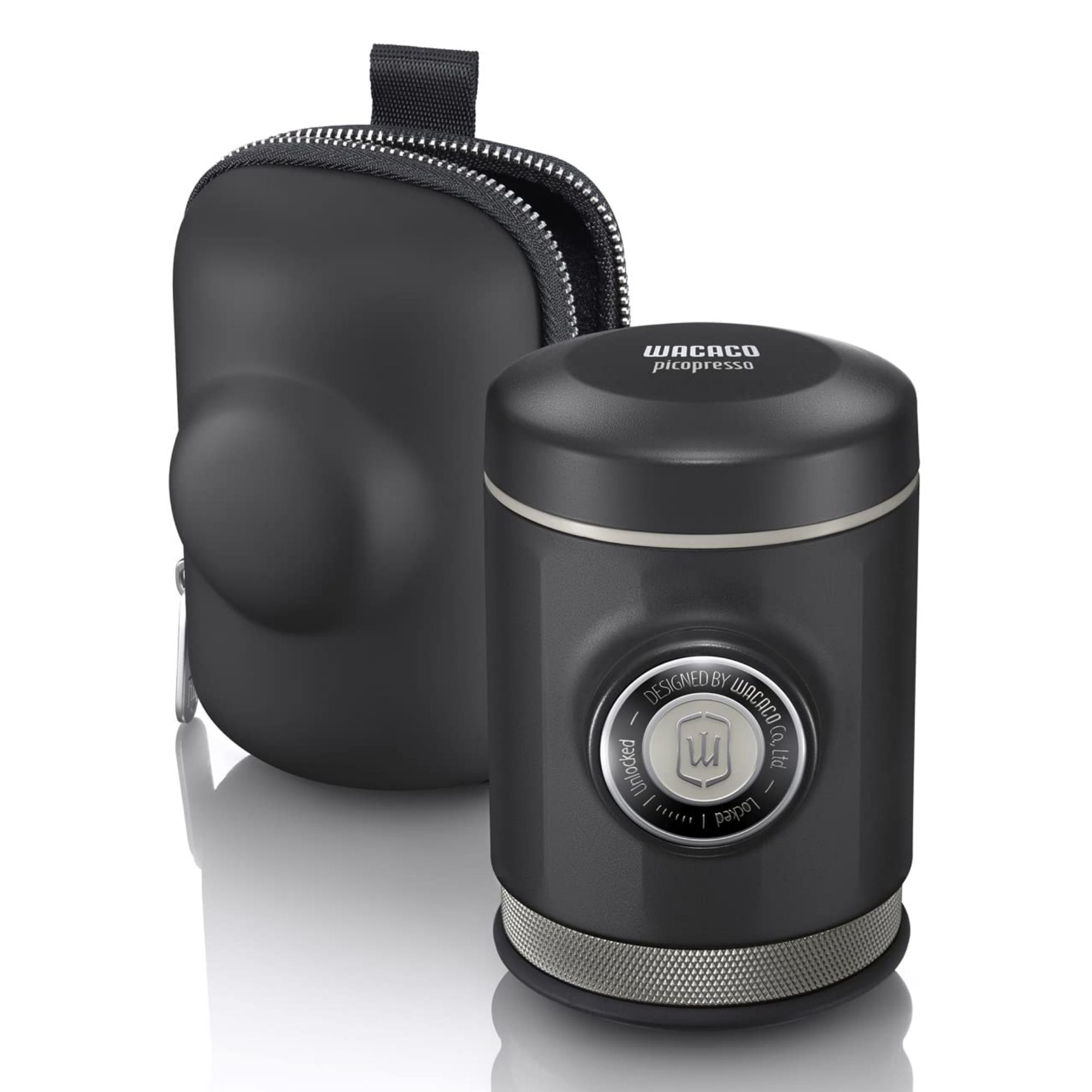
At around the size of a can of cola, this is the smallest espresso machine you'll ever use. It's mini but mighty, making espressos that rival the bigger, louder, and more expensive machines, but in tiny quantities.
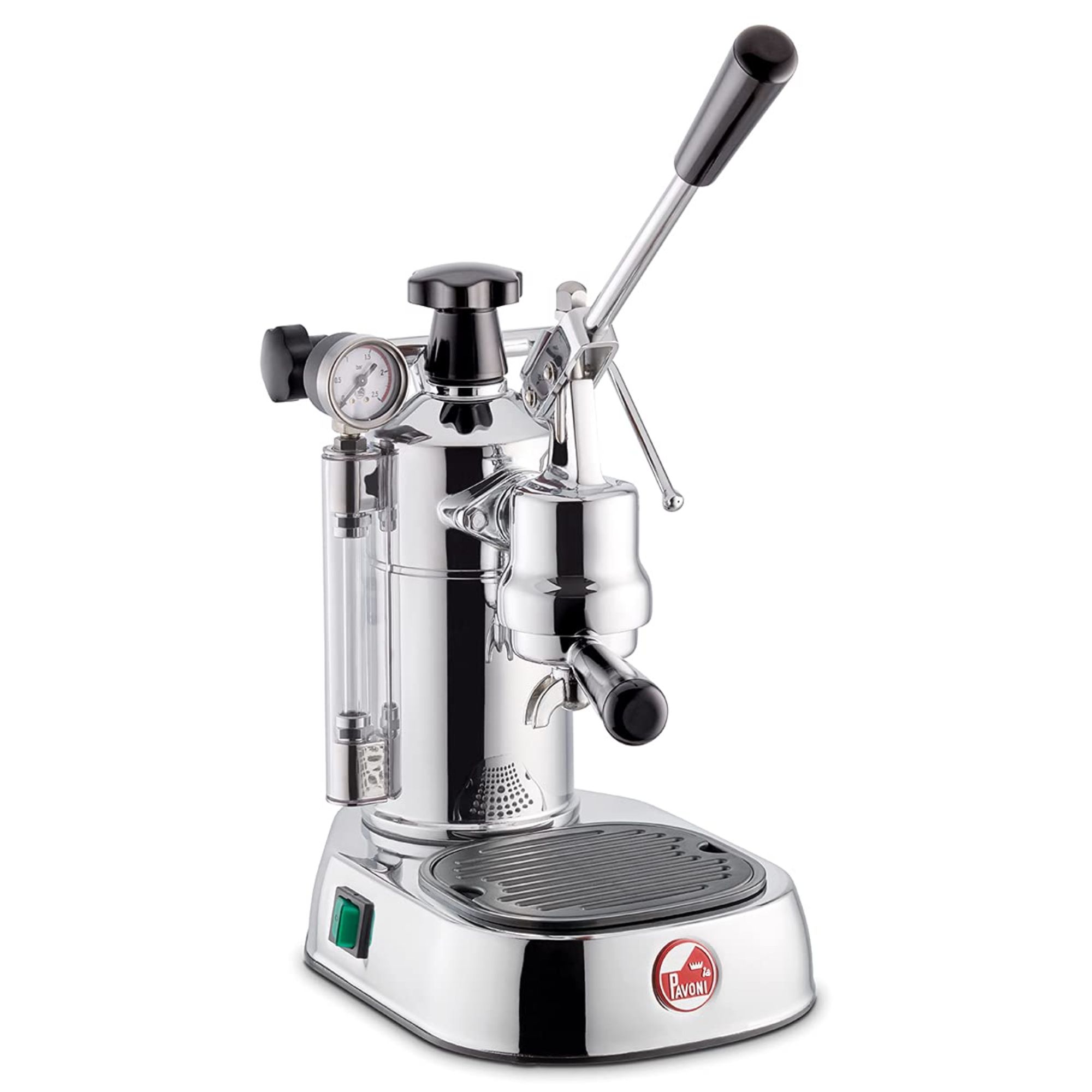
More of a professional machine, La Pavoni is the opera singer of espresso machines. It's Italian, classy, and utterly entrancing. If you need a dinner party conversation topic, direct everyone's eyes towards La Pavoni. It's a shiny, statement coffee maker, reserved for coffee hobbyists.
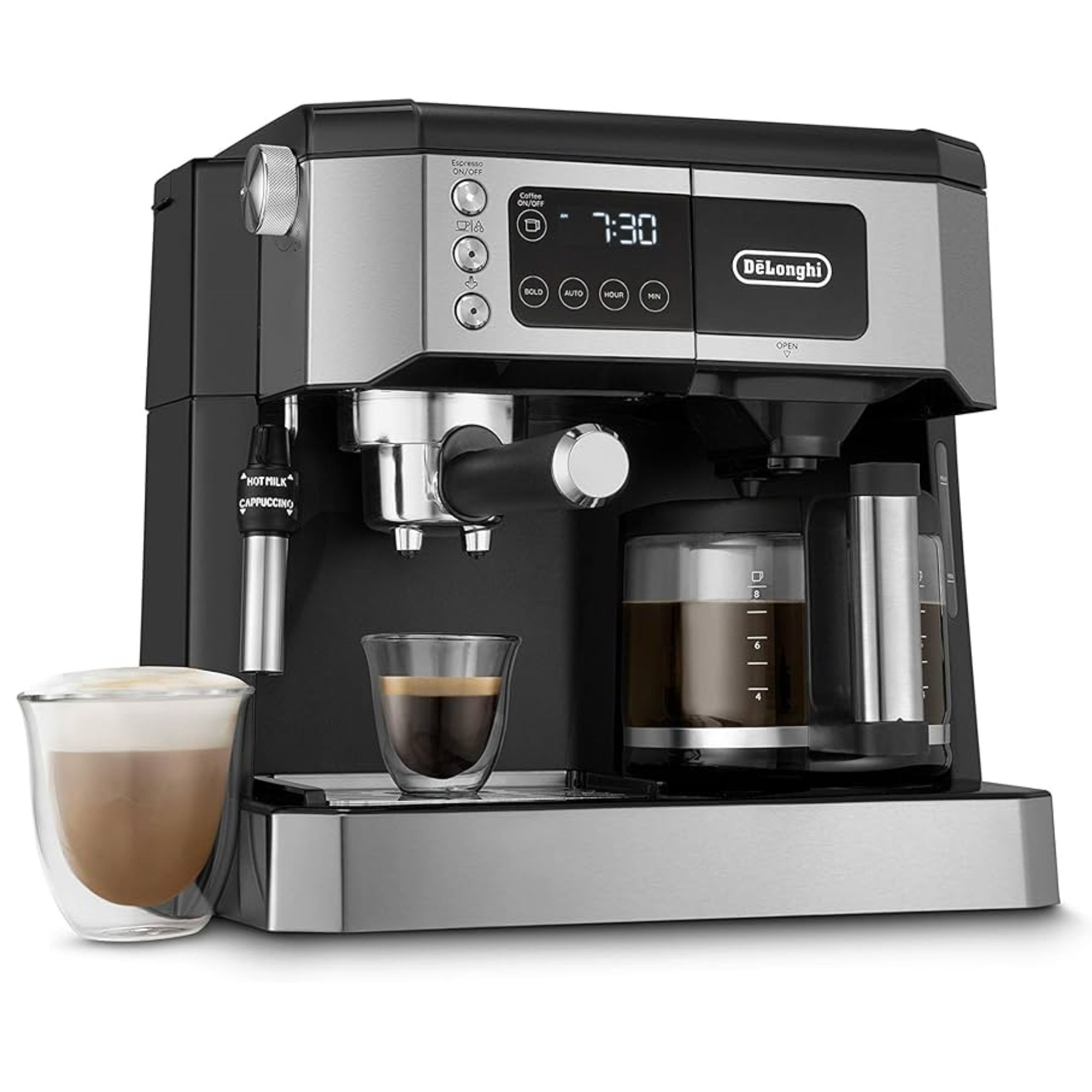
If you like your drip coffee as much as an espresso and sometimes you like to froth your milk, this combines a number of countertop appliances into one. It's exceptional value for a multifunctional appliance, but sacrifices specialisms for a general appeal.
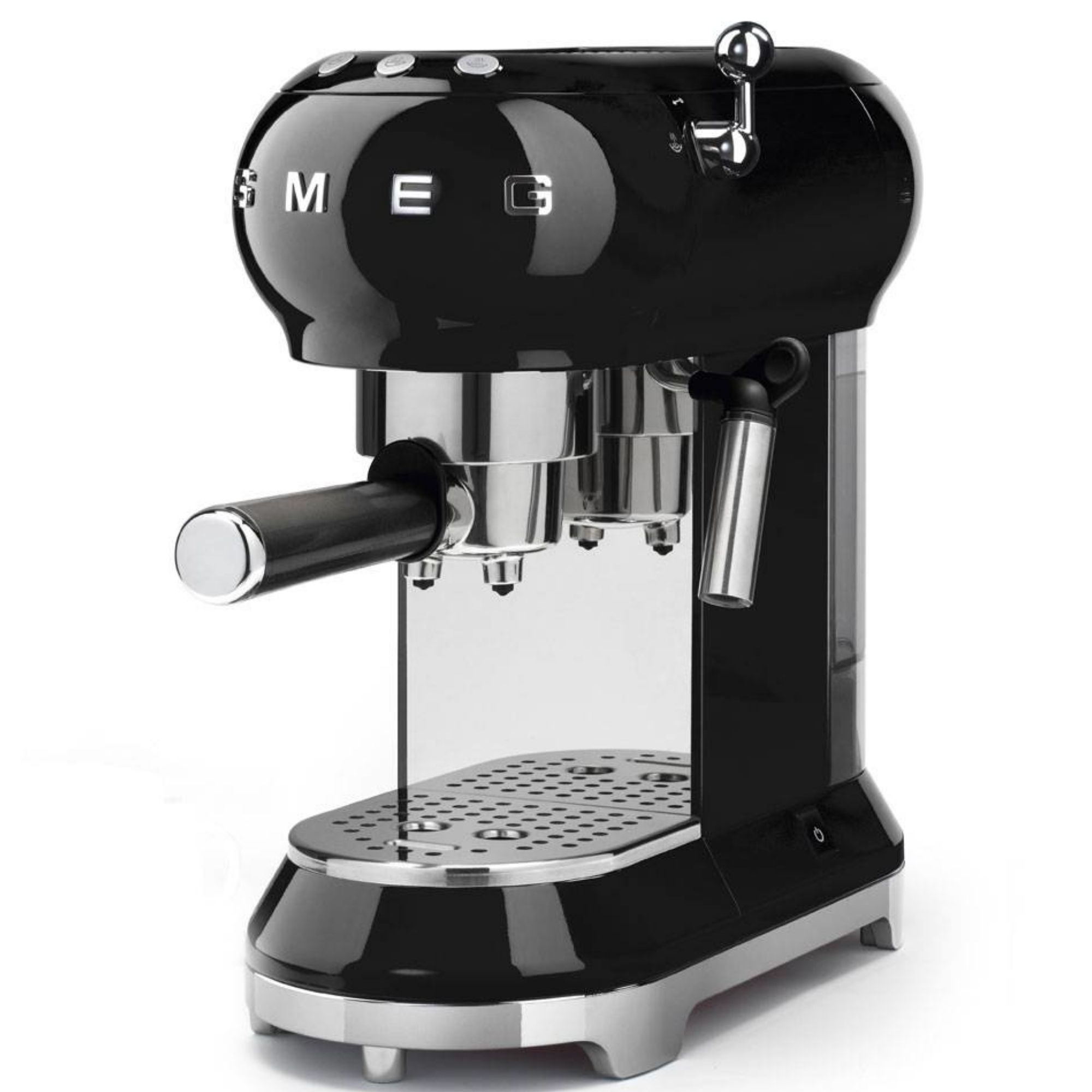
The retro, slim silhouette of the Smeg makes this one of the most attractive espresso machines on the market. It's basic and the low brew head and short steam wand limit your cup size, making this an expensive style statement. Let's just say this isn't our award-winner for value.
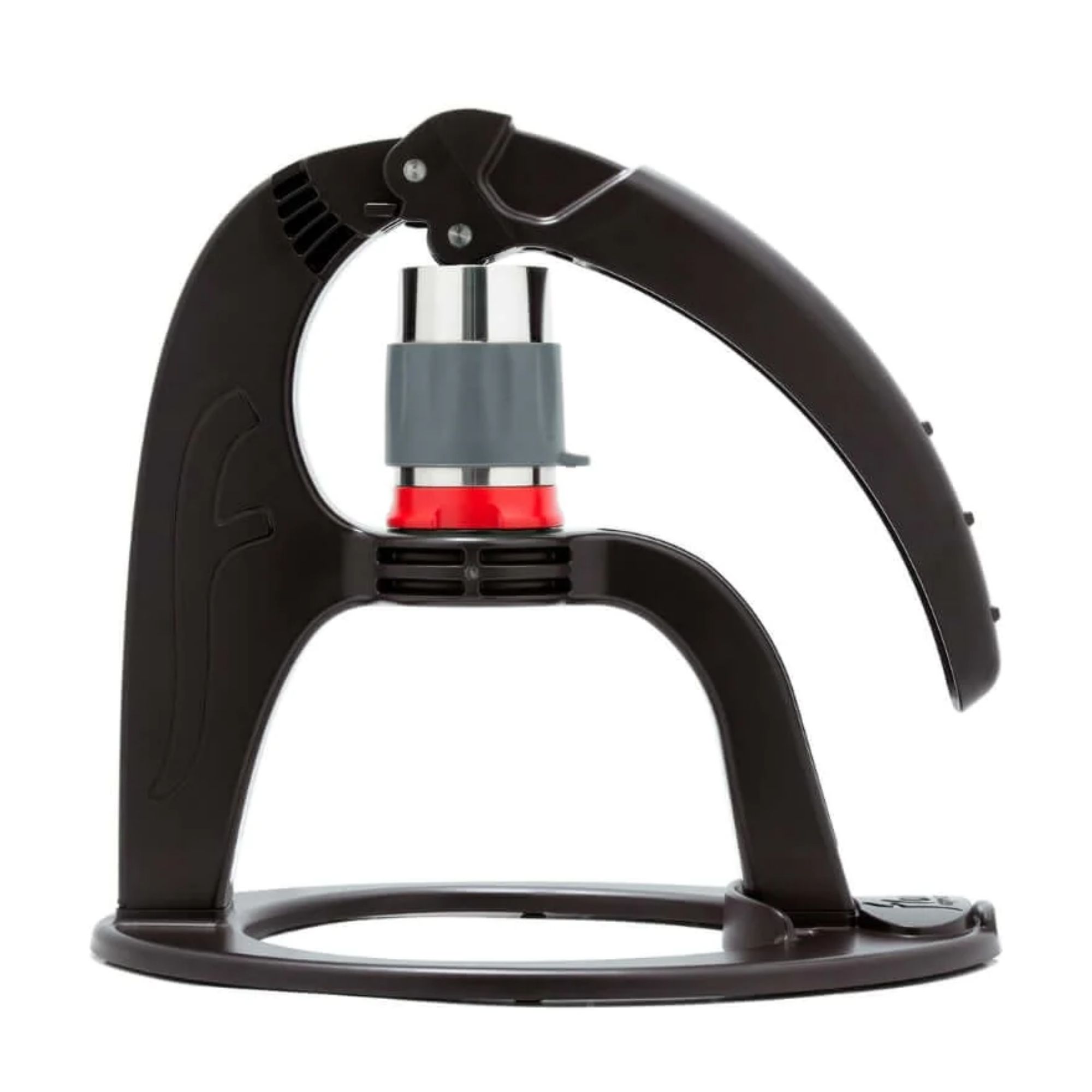
Whether you're stripping things back to basics or looking for a silent machine, the NEO Flex is exceptional. The design is minimalistic and portable and the coffee is excellent too. It's only $30, but you'll need a kettle and a lot of skill to enjoy this fully.
How we test espresso machines
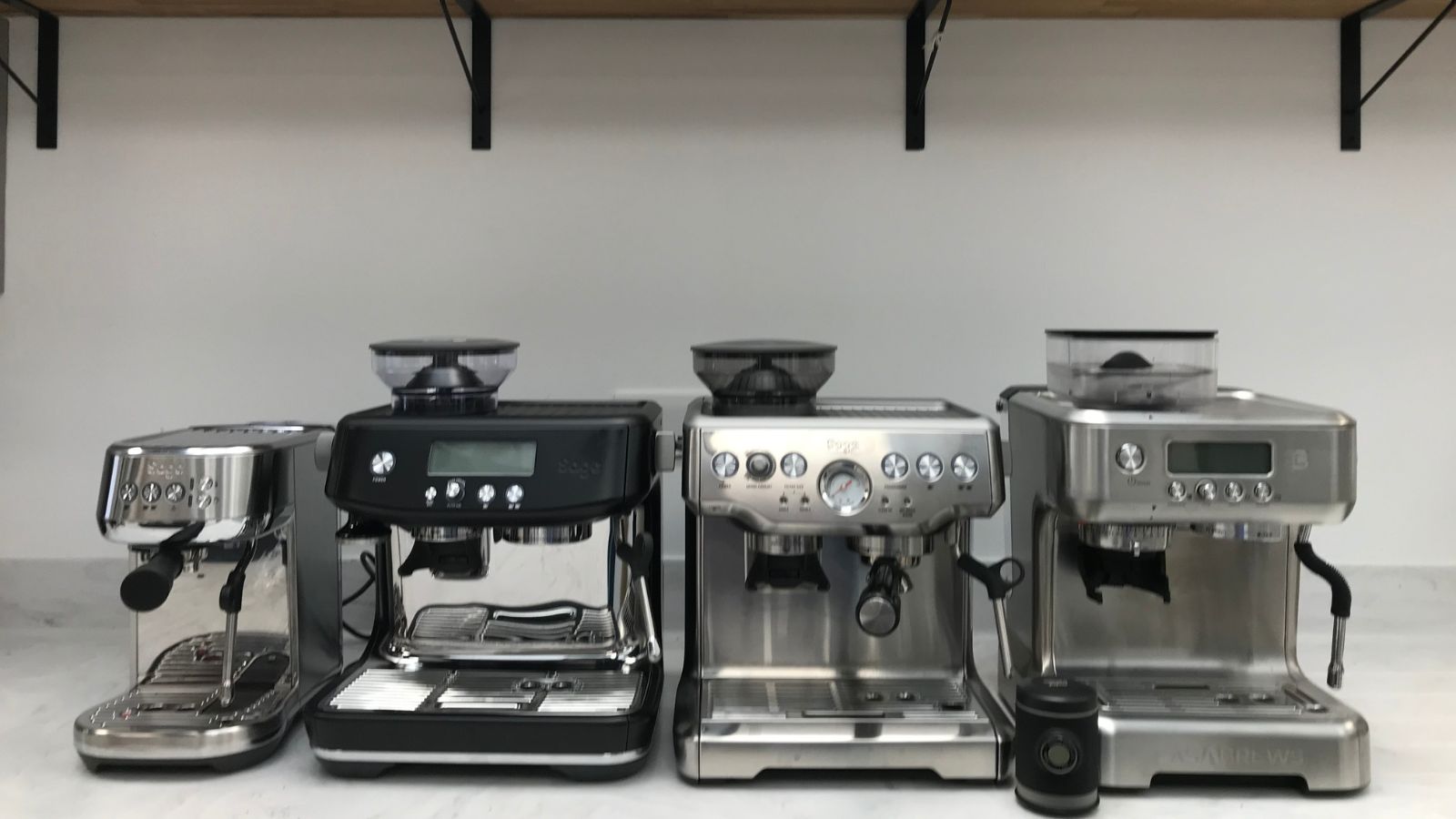
At Homes & Gardens, we have a rigorous testing process for all of our coffee makers. This enables us to score coffee makers both individually and against other models on the market.
Research: As head of kitchen product testing at Homes & Gardens, this is my starting point. I'm always on the lookout for the best coffee makers on the market. Once I’ve found one that I think you, our readers, will like, I order it to my home kitchen. I usually like to test at home, as it means I can use the appliance in my regular routine for around a month, to uncover hidden advantages or pain points. Then, I usually take my favorite machines to the test kitchen, so I have the space to directly compare them in person, alongside our expert barista (see the picture above).
Design: Once the machine is in our hands, we first consider the design and build quality. We give extra points to coffee makers that look good on the counter, but never prioritize style over substance.
Brewing performance: The first thing we make with any espresso machine is an espresso. This is a way of testing how good a coffee maker is at the basics. Our expert barista, Laura, says: 'A good espresso should be between 1.25-2 oz. It should be 190-205 degrees and full of flavor. A big giveaway is the crema on top: that should be thick with a hazelnut hue.'
Then, we test other brews: including americano, latte, cappuccino and anything else the coffee maker has to offer.
Cleaning & ease of use: After brewing and tasting, we make notes on the clean-up process as well as how we would recommend storing and maintaining the coffee maker. We also think about how easy it is to use and what type of coffee drinker it would suit.
Value for money: After a month of testing and evaluating, I round up all our testing notes, comparing and contrasting the models against each other. I also look at online reviews to see what other experts and real-life customers thought, so that I could bring you more insight. After this, I give each coffee maker a score out of five. Only the five-star appliances make it into my best coffee maker buying guide.
If you’re interested and want to find out more, you can read all about the process in our how we test coffee makers page.
Sign up to the Homes & Gardens newsletter
Design expertise in your inbox – from inspiring decorating ideas and beautiful celebrity homes to practical gardening advice and shopping round-ups.

Lydia is the Kitchen Appliances Editor for Homes & Gardens, testing everything from air fryers and mixers to juicers and coffee machines. She trained in Culinary Arts at Leiths School of Food & Wine and previously served as the Recipe Editor for Mindful Chef.
-
 Go guilt-free – I'm a professional home organizer and these are the 5 decluttering rules I urge you to break
Go guilt-free – I'm a professional home organizer and these are the 5 decluttering rules I urge you to breakDitch the rules for stress-free declutter
By Orna Fathers
-
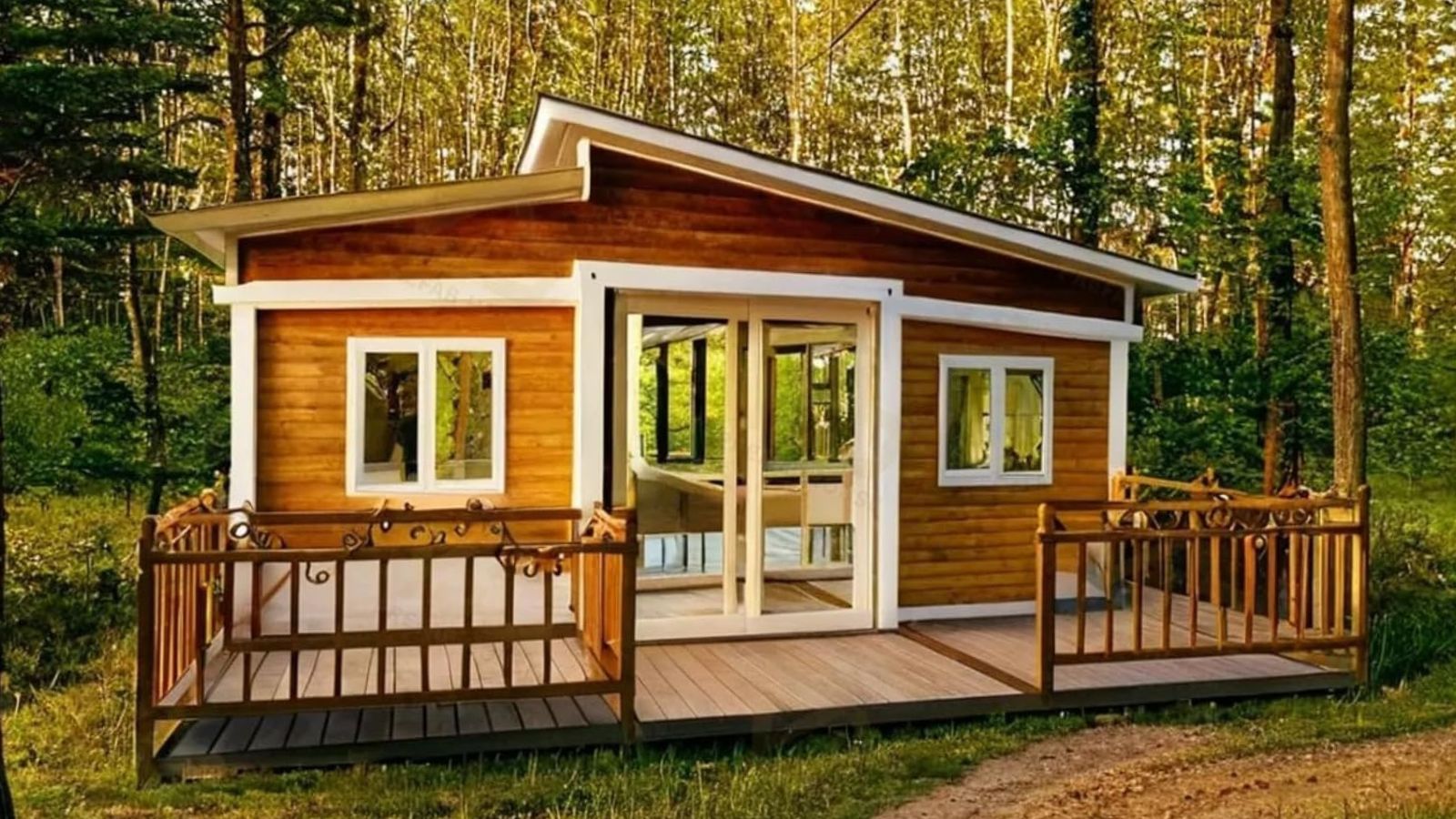 This ultra-tiny 'luxury villa' is sold on Amazon – estate agents say this unconventional, pre-assembled home is more than a novelty
This ultra-tiny 'luxury villa' is sold on Amazon – estate agents say this unconventional, pre-assembled home is more than a novelty'Tiny homes are more than a trend. They’re part of a bigger conversation about how we live' – this foldable house is one of many shaping 2025's real estate industry
By Megan Slack
-
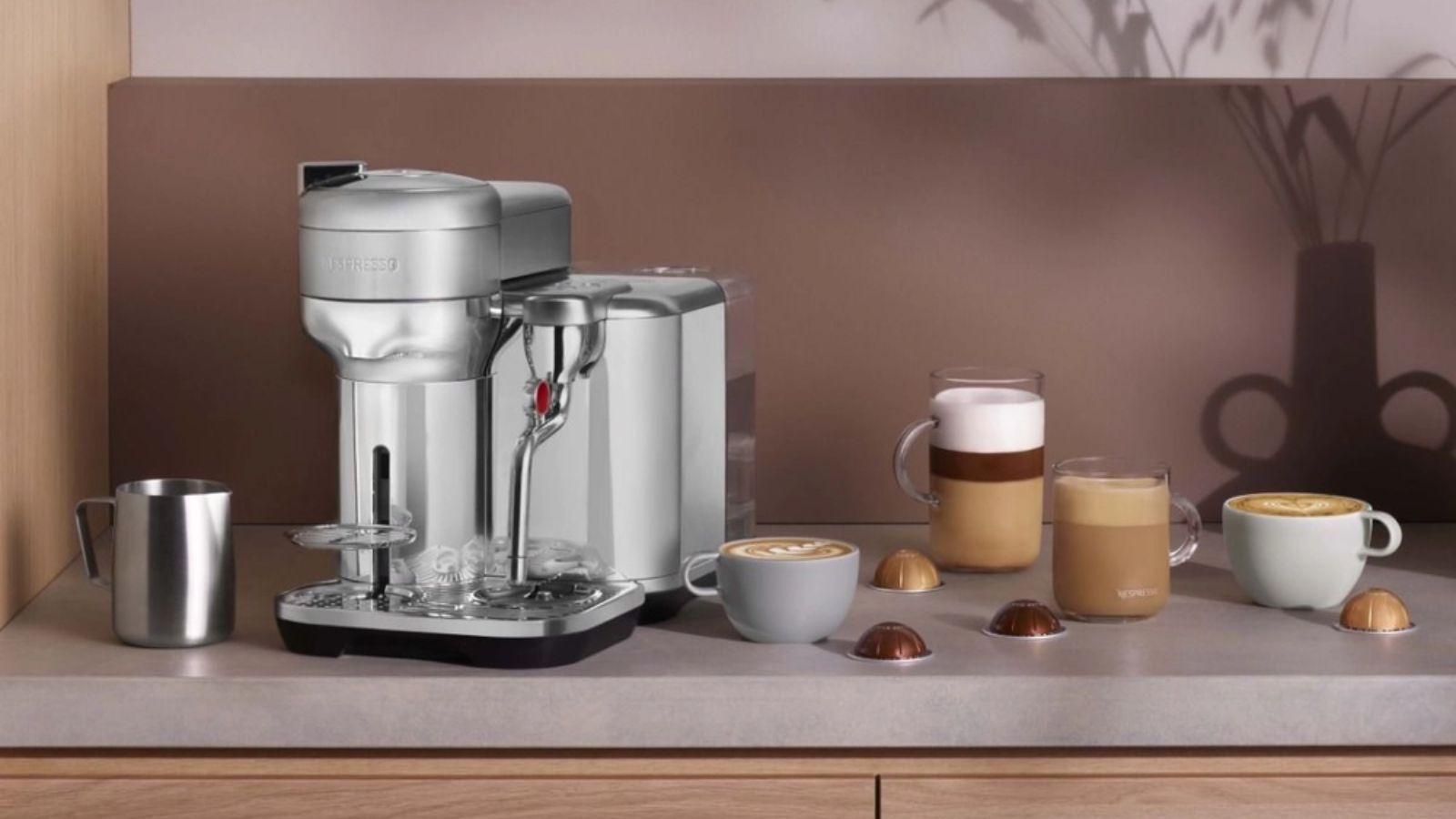 Nespresso vs espresso – tested for taste, cost, and technical differences
Nespresso vs espresso – tested for taste, cost, and technical differencesA barista offers some perspective on the Nespresso vs espresso debate. She's tested them for taste, and accounted for cost differences too
By Laura Honey
-
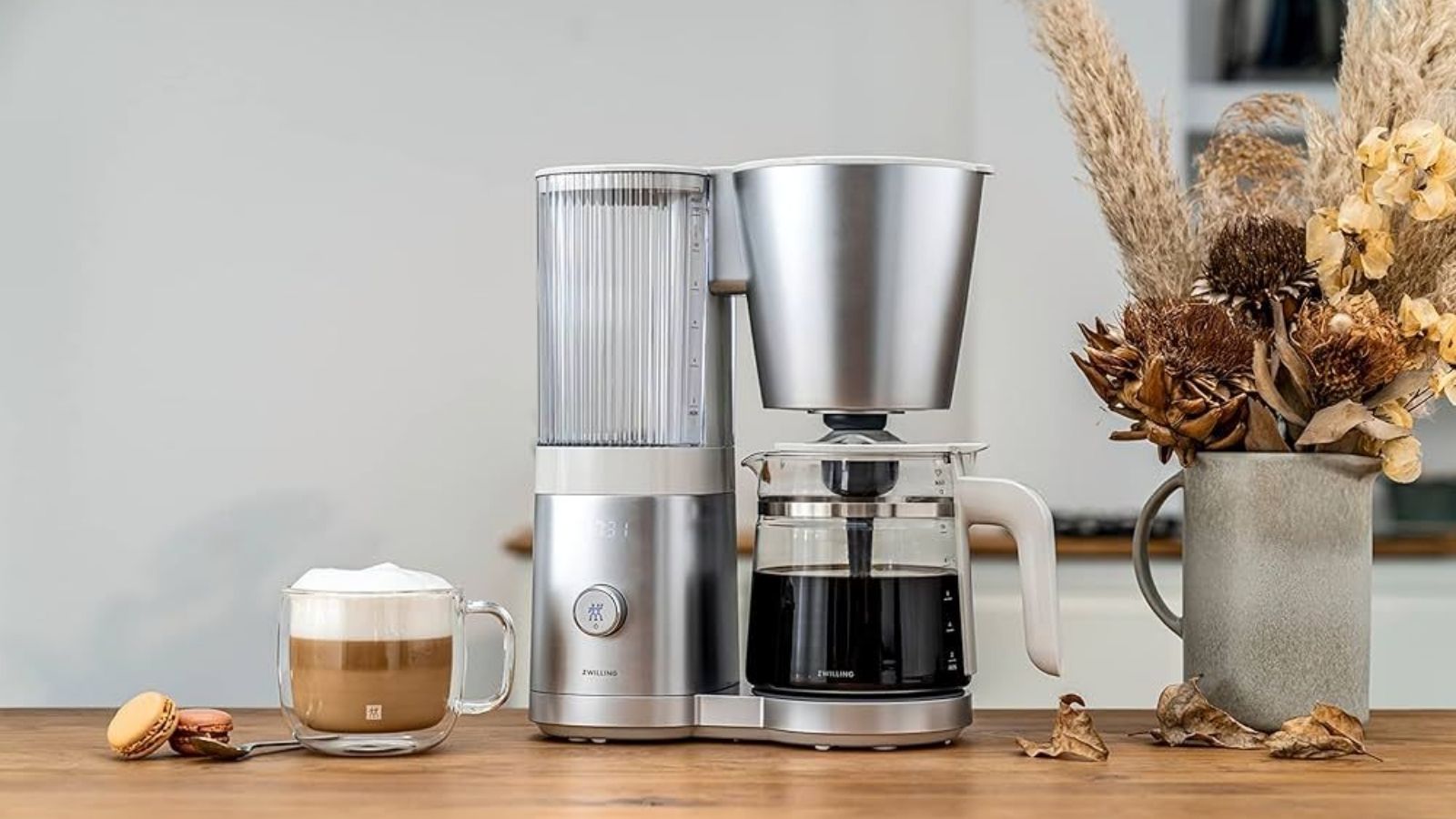 I just tested the best small drip coffee maker – and it's surprisingly stylish too
I just tested the best small drip coffee maker – and it's surprisingly stylish tooI've tested a range of filter coffee options and it turns out that the best small drip coffee maker is beautiful, sleek, and smart too
By Laura Honey
-
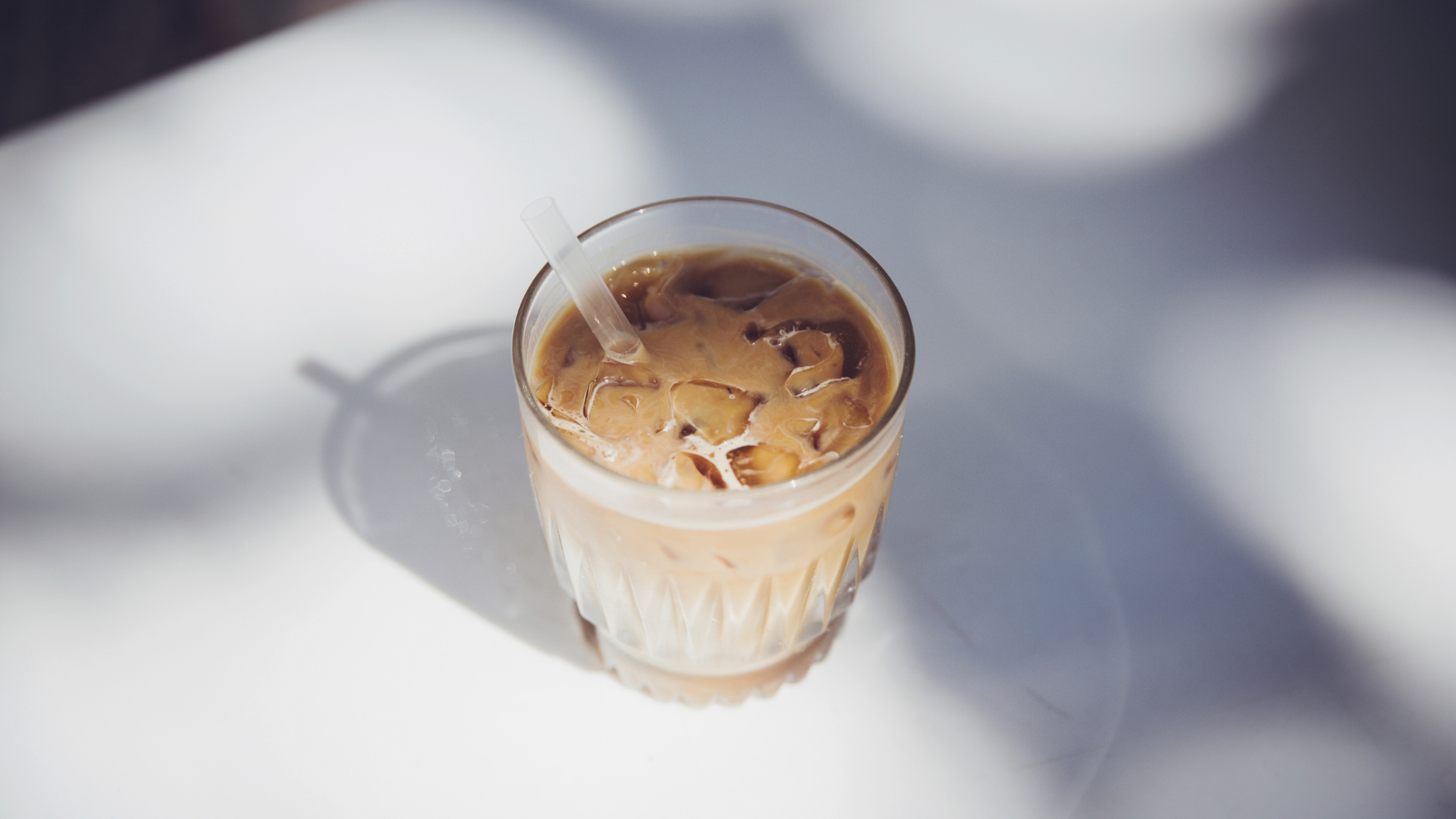 The best iced coffee makers – save hundreds by switching your favorite coffee shop drink to a delicious homemade one
The best iced coffee makers – save hundreds by switching your favorite coffee shop drink to a delicious homemade oneForget takeout iced coffee, these machines will keep you cool and caffeinated all day long
By Lydia Hayman
-
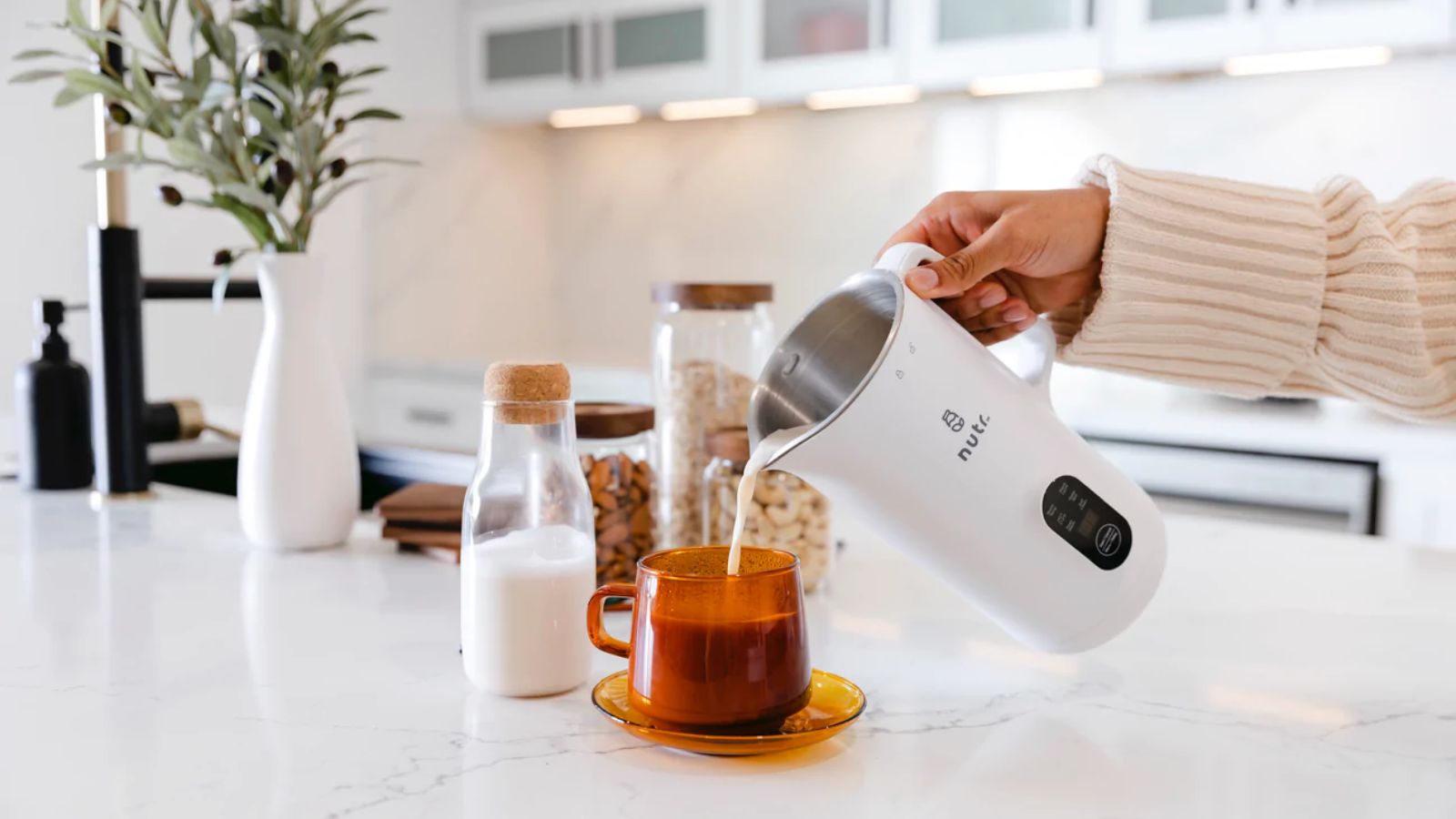 Best nut milk makers: tested by an expert vegan
Best nut milk makers: tested by an expert veganThese are the best nut milk makers for almond, oat, coconut milk and more. Our expert vegan barista tested them to see which is best
By Laura Honey
-
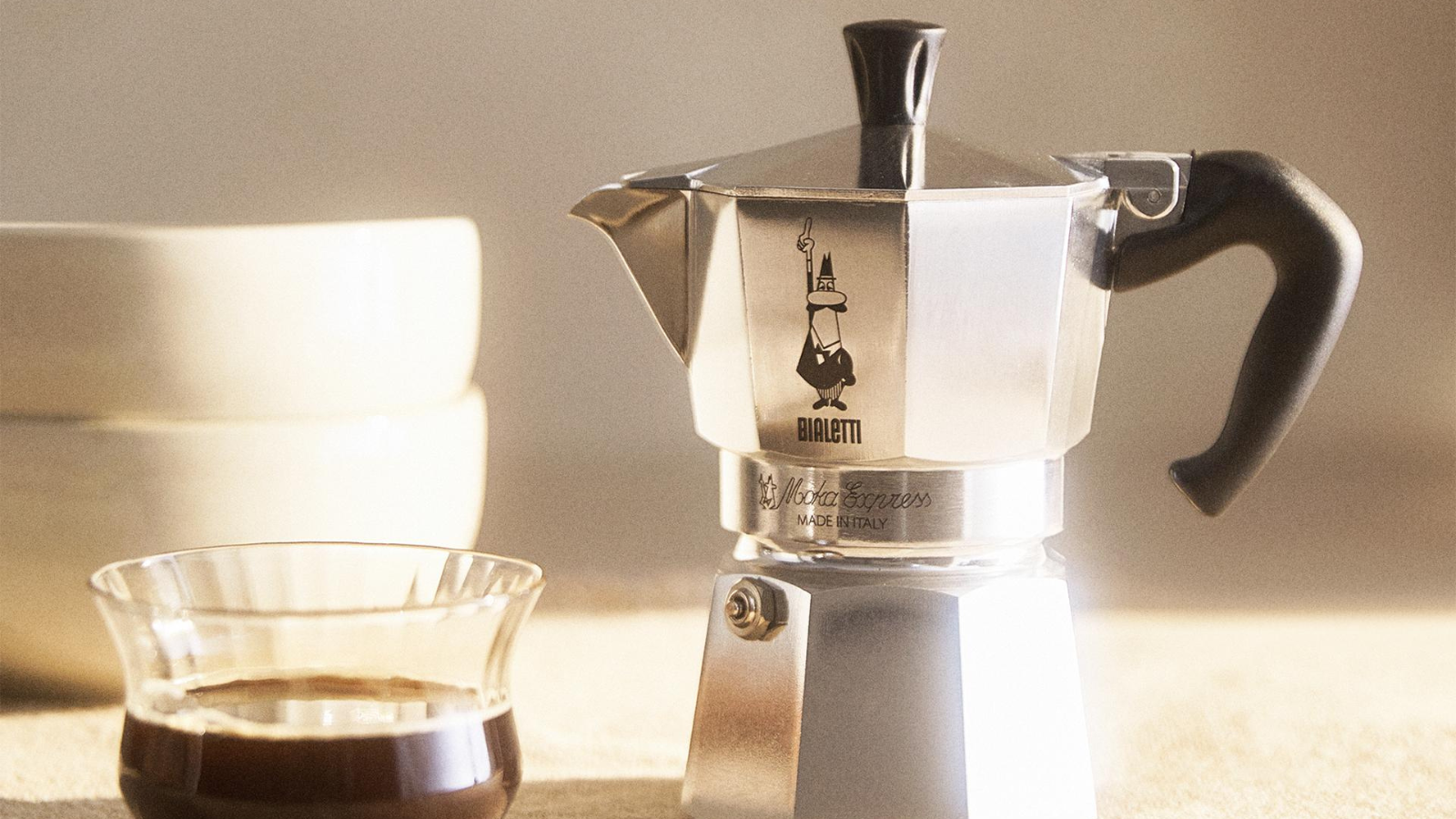 The best moka pots for easy Italian-style coffee straight from your stovetop
The best moka pots for easy Italian-style coffee straight from your stovetopOur tried-and-tested moka pots for brewing delicious coffee at home – the stylish, Italian way
By Lydia Hayman
-
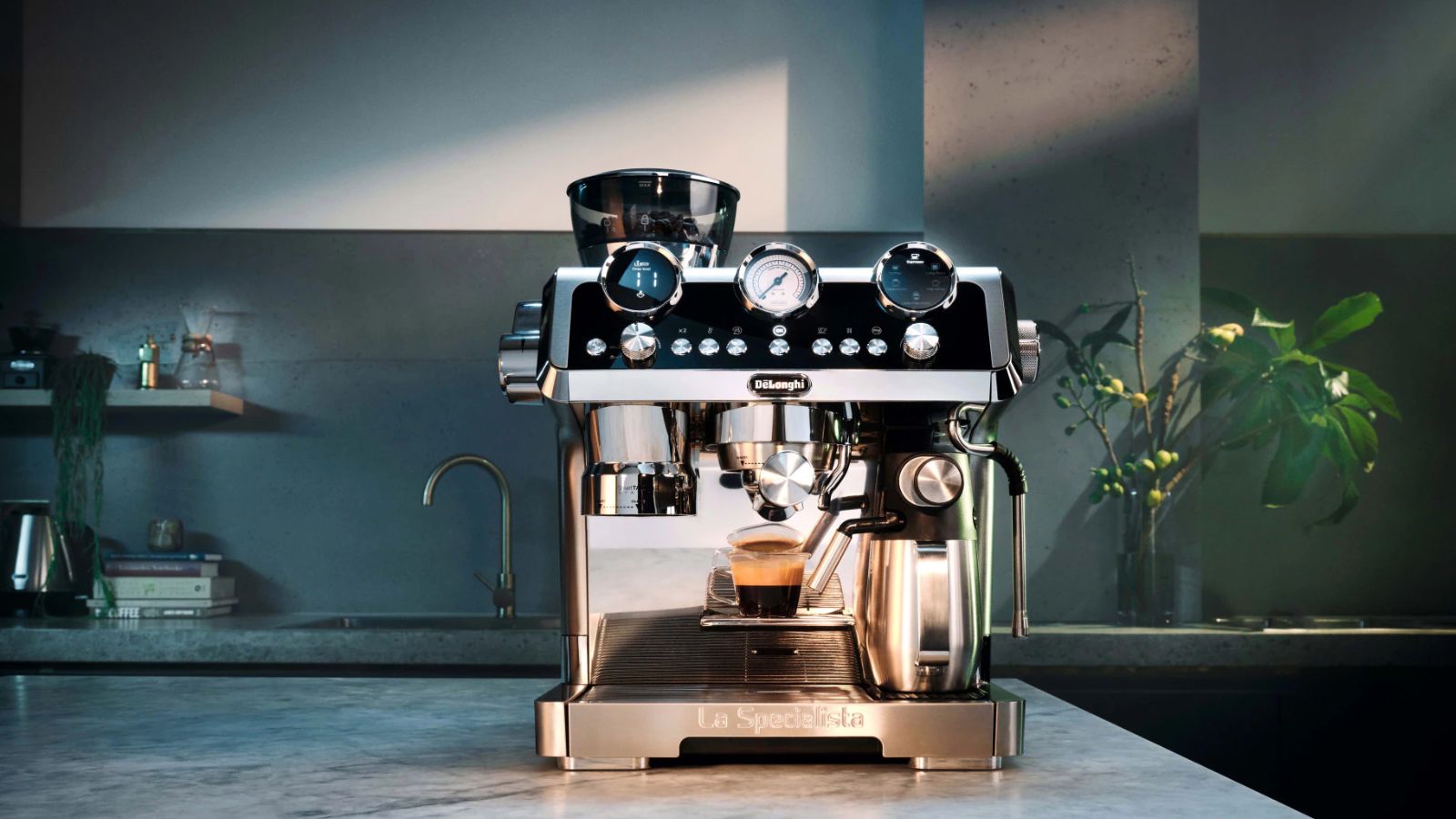 The best coffee makers with grinders for the freshest, most flavorful brews
The best coffee makers with grinders for the freshest, most flavorful brewsFrom luxurious espresso machines to tiny drip coffee makers, these are the best coffee makers with integrated grinders
By Lydia Hayman
-
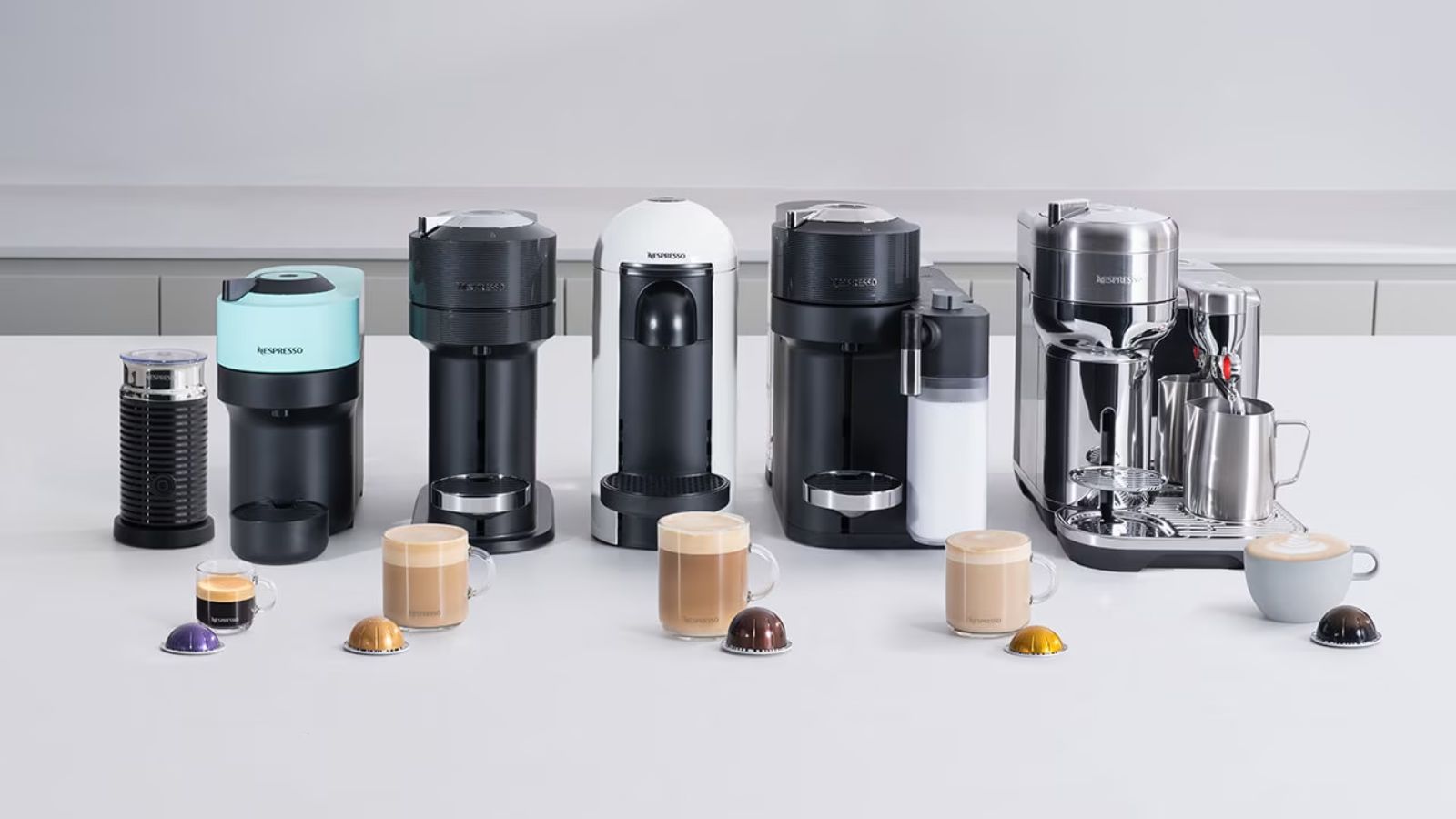 Best Nespresso machines – for every kind of coffee drinker
Best Nespresso machines – for every kind of coffee drinkerHow do you know whether you want the Lattissima or the Creatista, the Vertuo or the Original, and the Essenza or the Pop? We have the answers
By Laura Honey
-
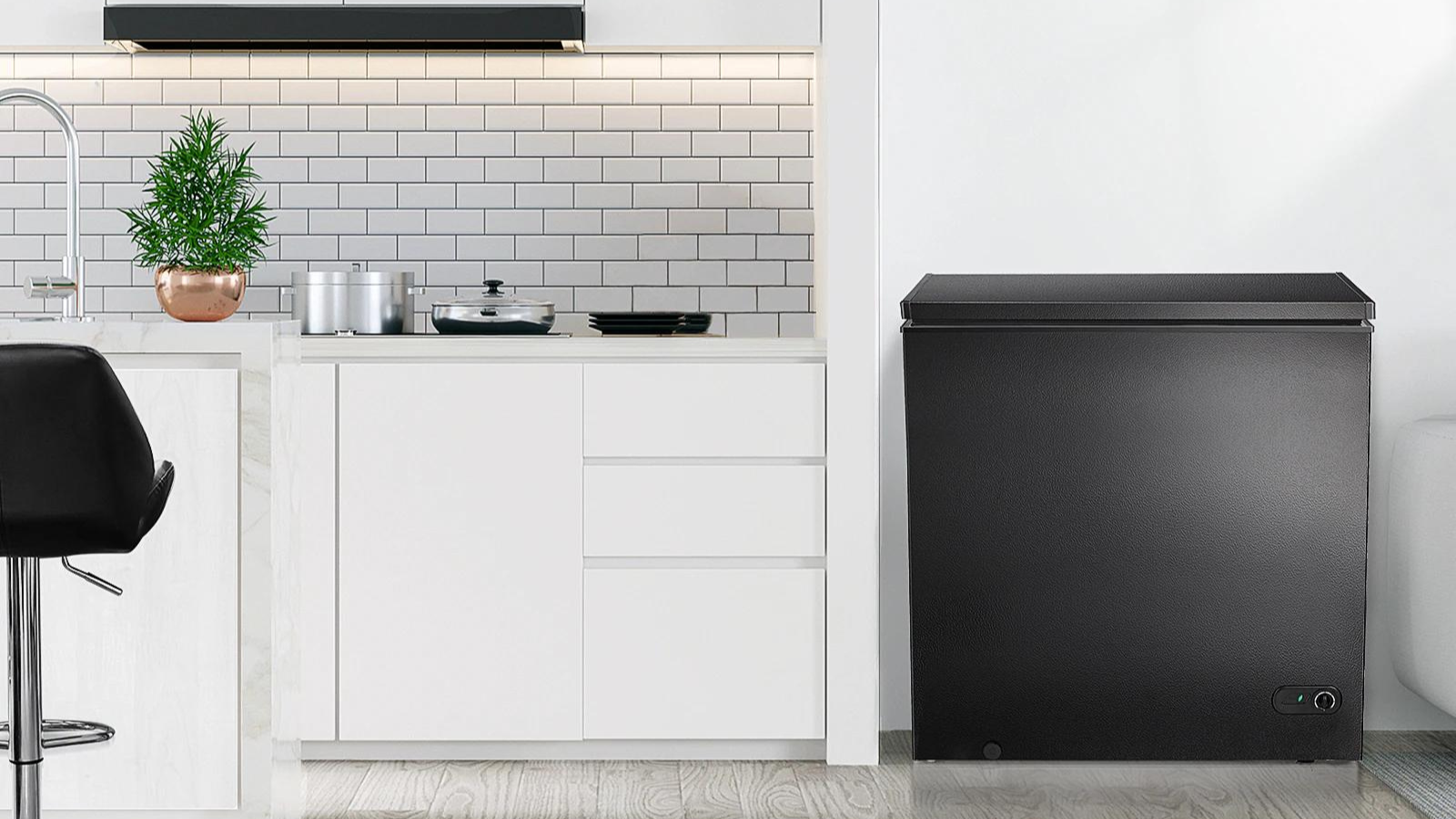 Best chest freezers: spacious, dependable, and practical
Best chest freezers: spacious, dependable, and practicalI've researched the best chest freezers on the market. From garage-friendly to enormous capacity, these are my top picks.
By Lydia Hayman